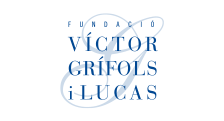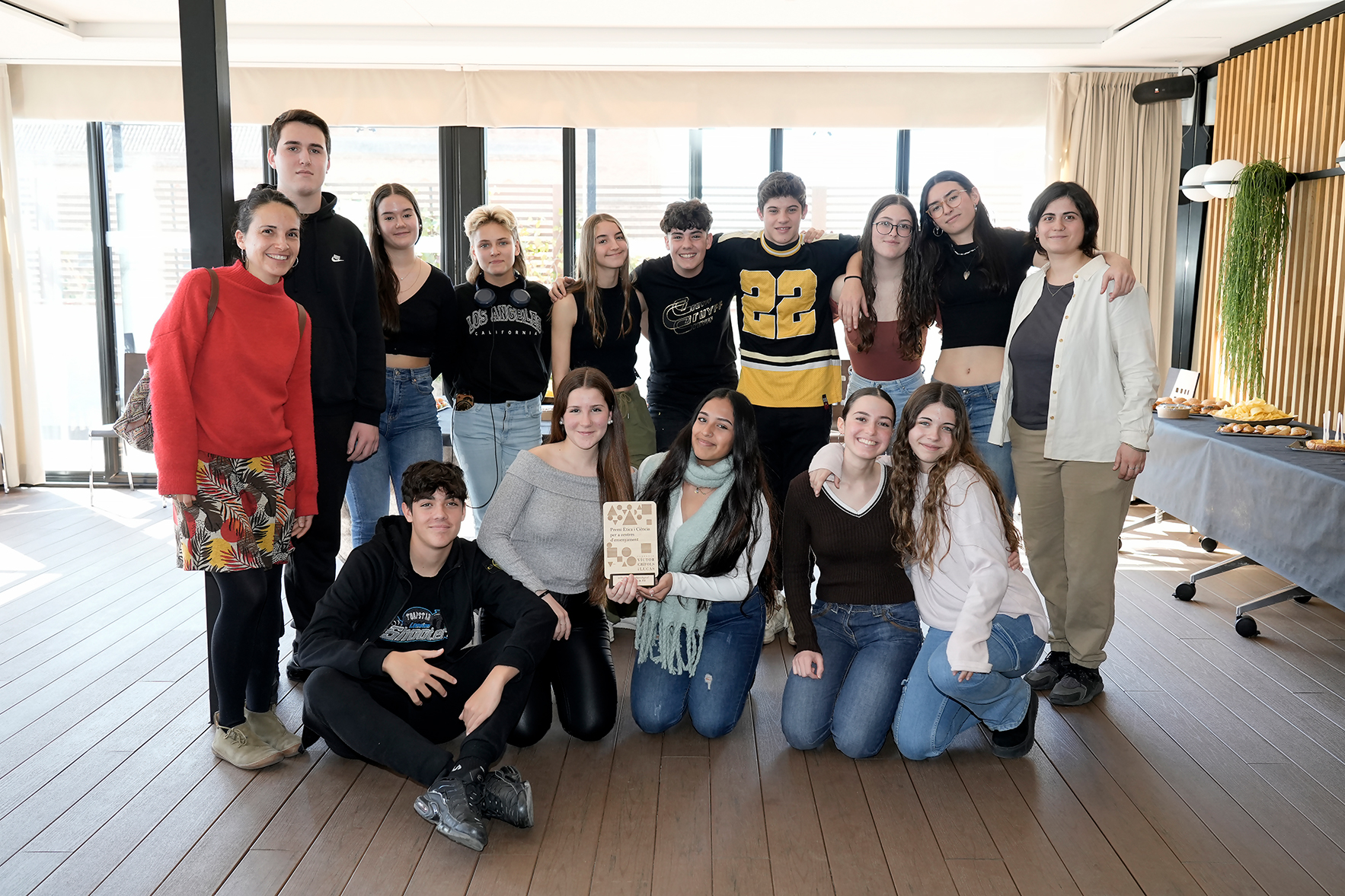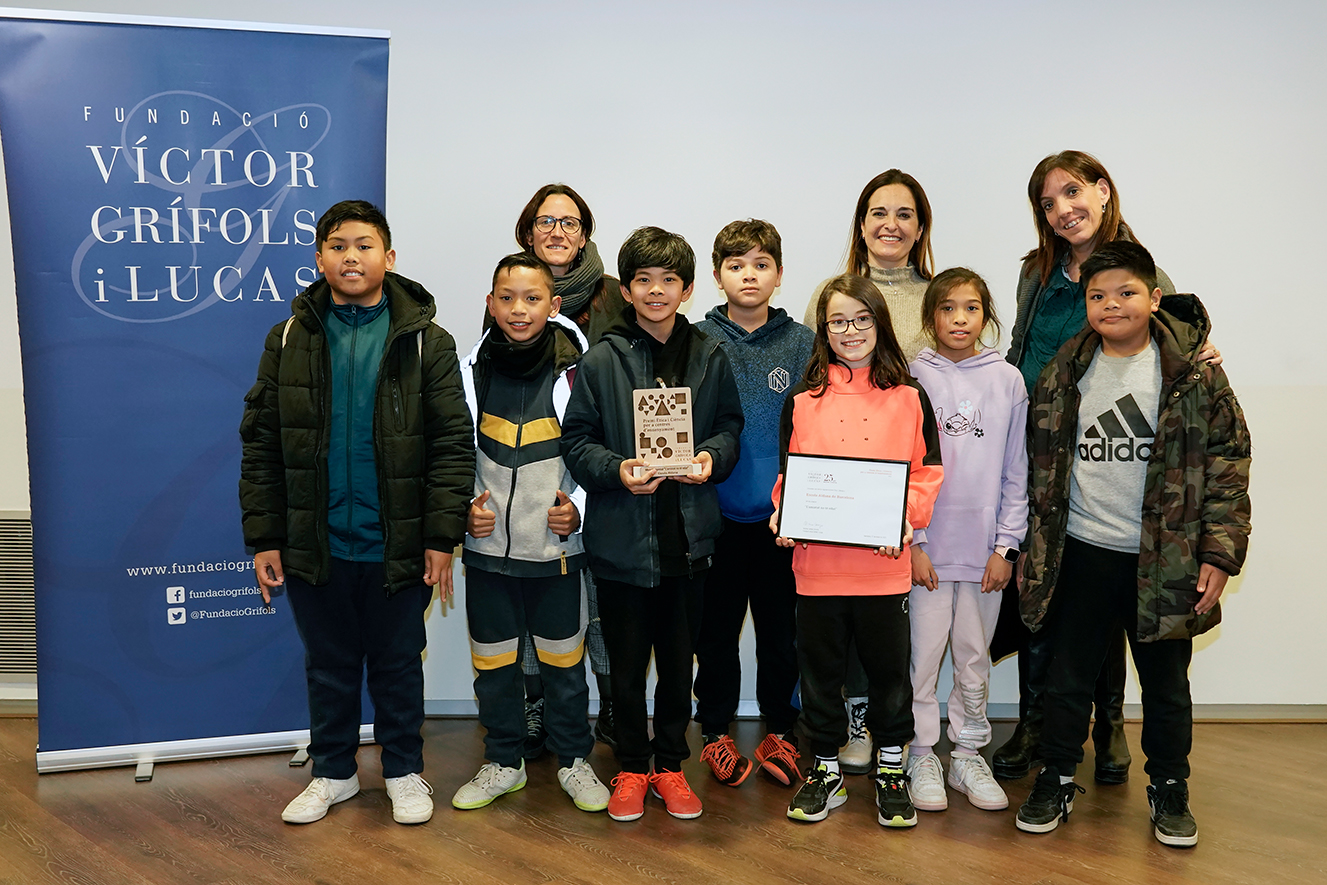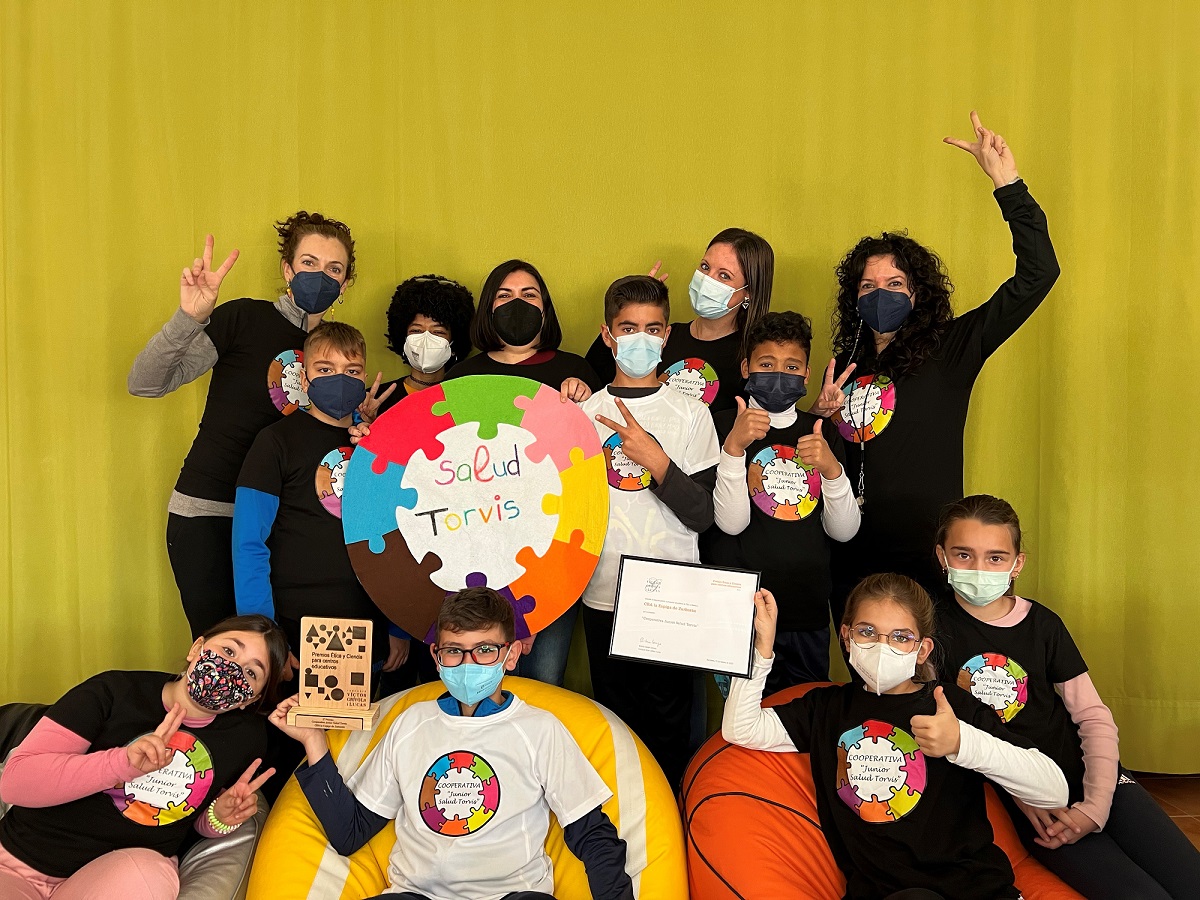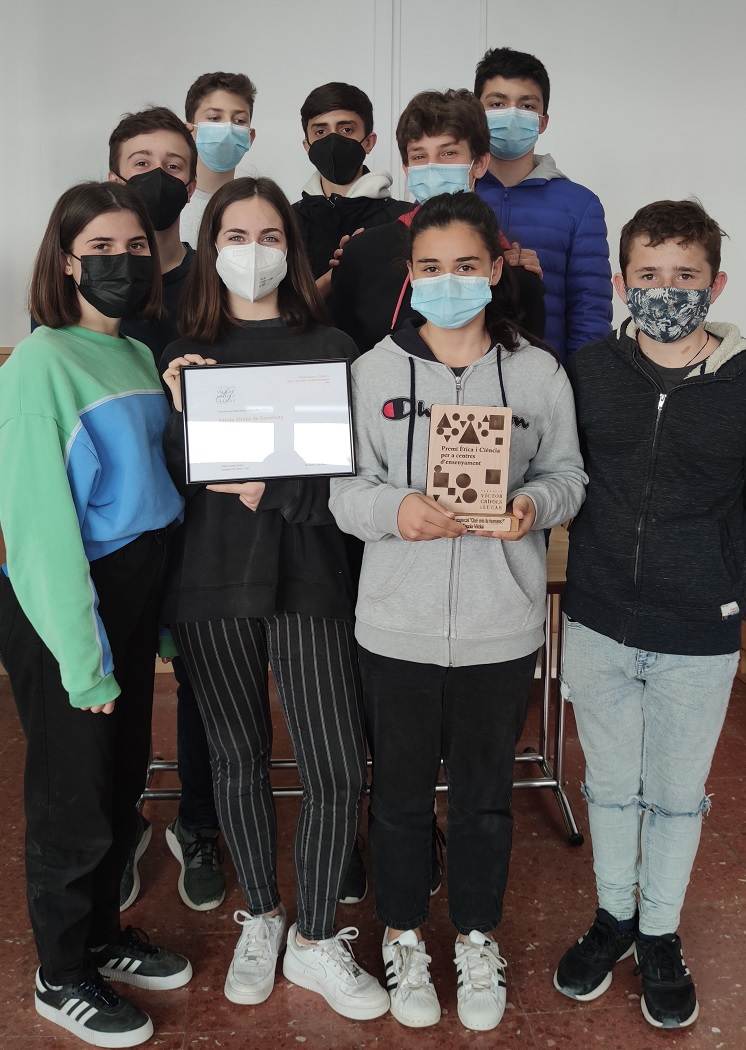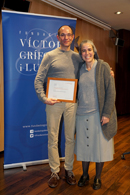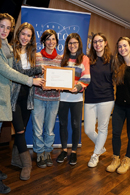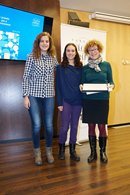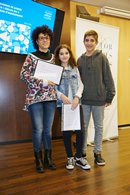Web Content Article
2024
FIRST PRIZE
Barres i Ones Secondary School, Badalona, for “Evolution, from a Gen(ethic) Perspective”
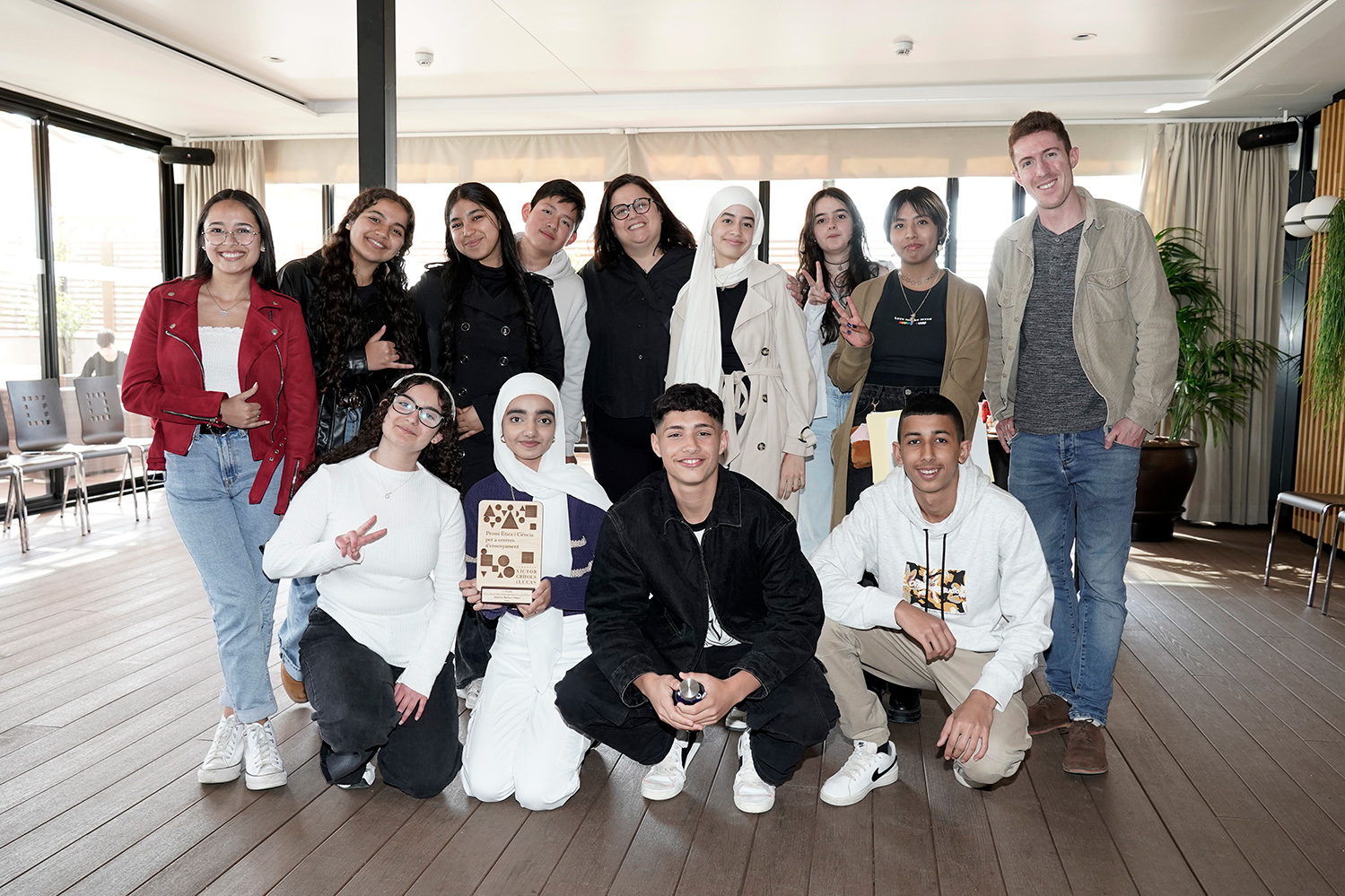
Geared towards 4th-year secondary school students, this project aims to foster critical thinking about genetic modification and bioethics. Using hands-on, gamified activities, students explore topics such as DNA, natural selection, and gene-editing techniques such as CRISPR.
The project begins with laboratory exercises focused on observing DNA. It then offers news articles on gene editing introducing key concepts from the literature such as chromosomes, genetic inheritance, and natural selection. The project culminates in a bioethical debate, using case studies from the Víctor Grífols and Lucas Foundation to prepare students for future challenges and promote a deep, critical understanding of science and technology.
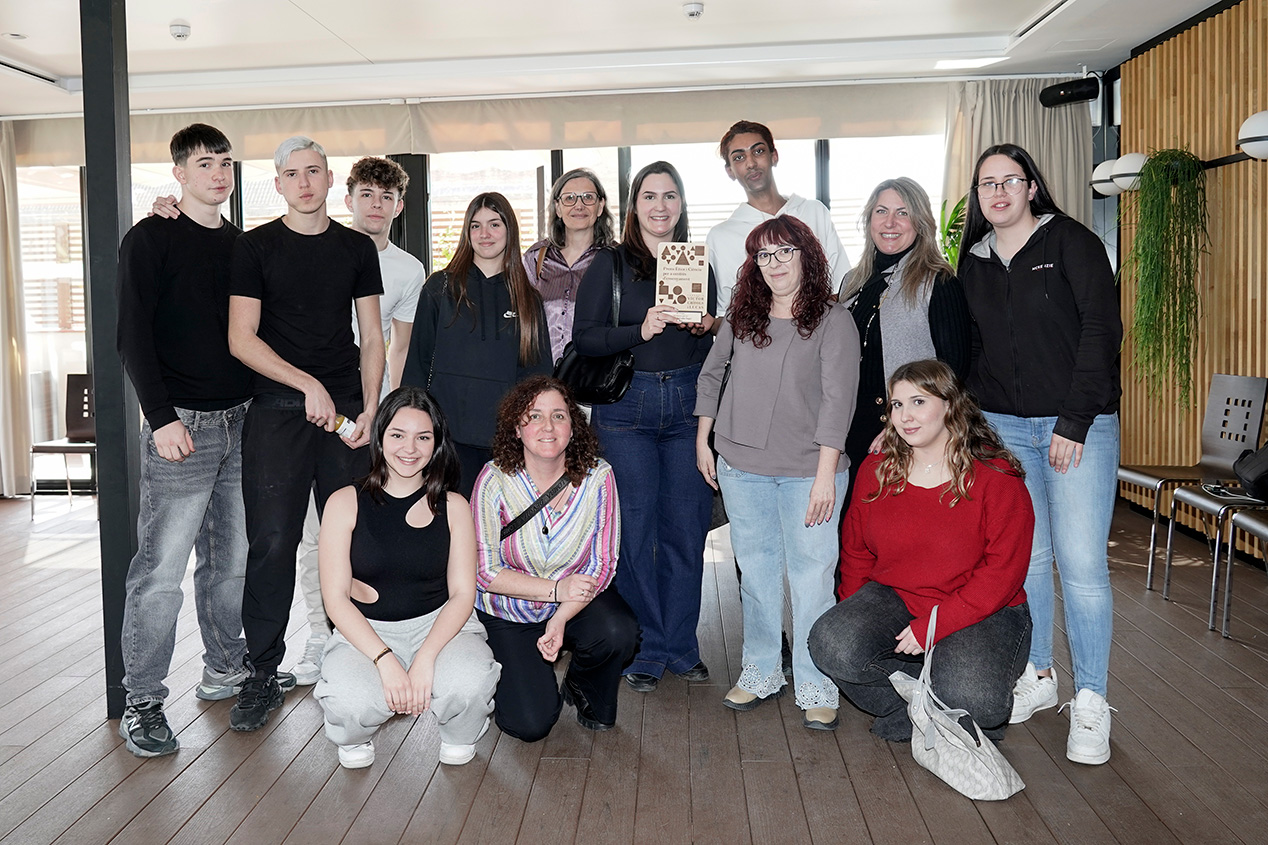
The idea behind the project is to provide free weekly hairdressing services to homeless women, while integrating ethical values into the professional training of students both in the CFGM (Hairdressing) and CFGS (Social Integration) programmes. Its main objective is to improve the well-being and dignity of these women, while raising awareness among students of the social responsibility of this profession.
The project was created with an aim of integrating ethical values into vocational training, while providing aesthetic and emotional support for homeless women. Additionally, it aims to foster teamwork, social and technical skills, as well as an inclusive mindset in students. A holistic educational experience is promoted to prepare students for conscientious and responsible professional practice.
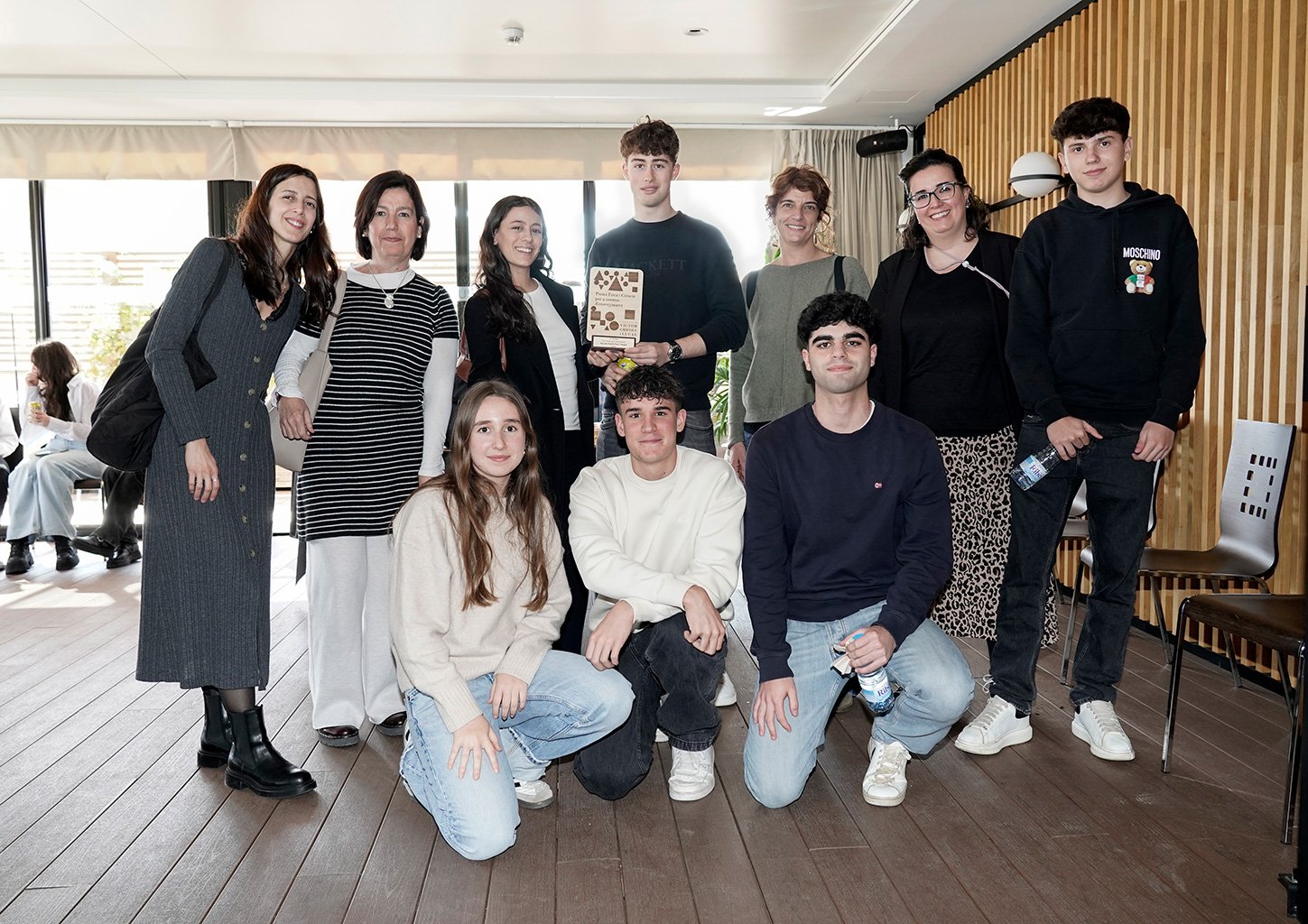
Aimed at 2nd-year secondary school students, this project is part of the elective subject entitled “Sustainable Environments”. This work employs the project-based learning (PBL) methodology to design a sustainable, inclusive, and resilient virtual city, aligned with the Sustainable Development Goals (SDGs), particularly SDG 11: Sustainable Cities and Communities.
The aim is to design a sustainable city while exploring ethical and scientific issues, developing students’ transversal skills, raising environmental awareness, and promoting the use of digital technologies. To do this, teams are formed to design a virtual city using Minecraft Education Edition, simulating urban environments. Teams must justify their urban planning decisions by applying scientific and ethical criteria, considering the impact of urbanization on climate change, integrating interdisciplinary knowledge, and fostering global citizenship.
2023
SECOND PRIZE
La Tordera School in Santa Maria de Palautordera for “L'intercanvi blau” (The Blue Exchange).
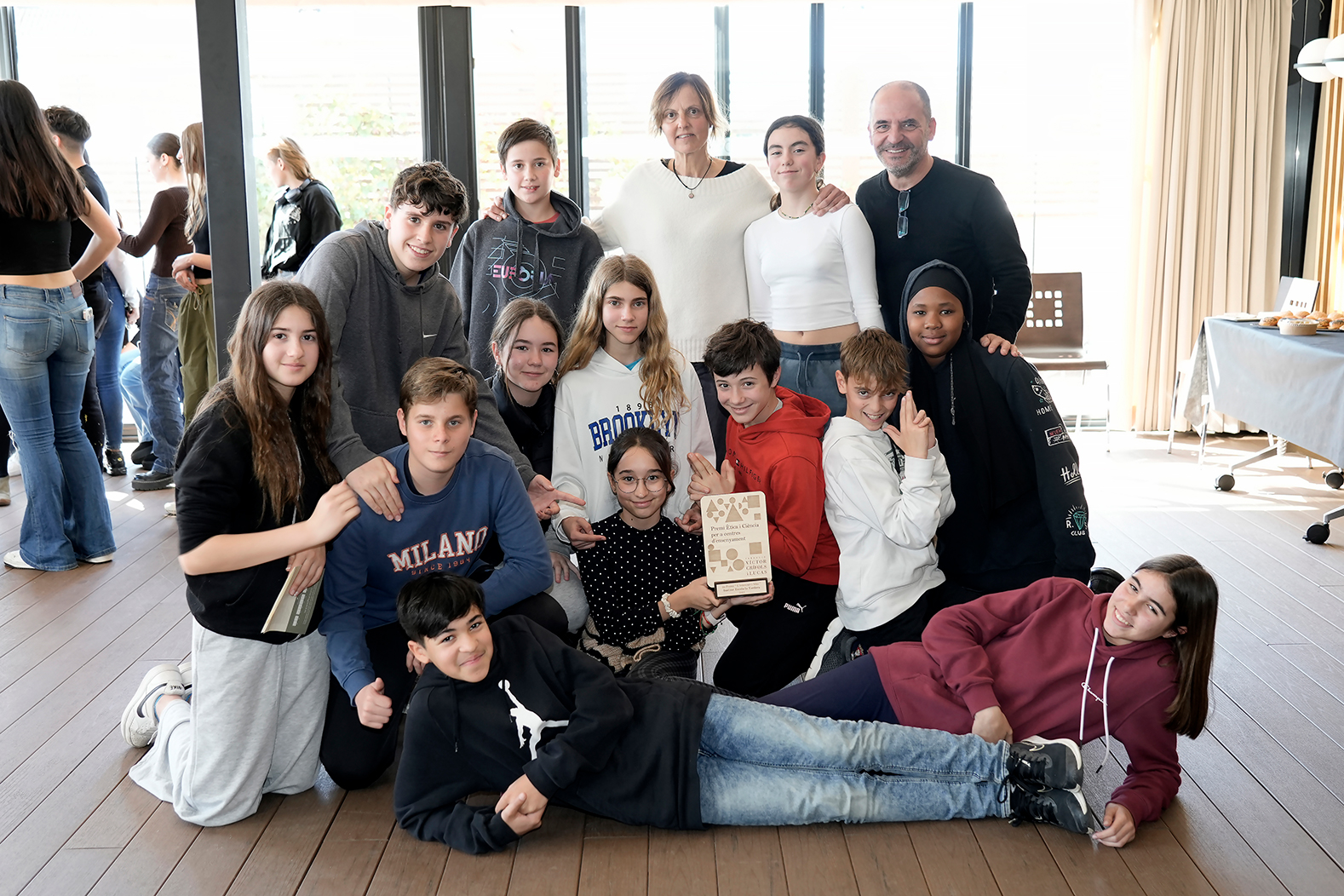
During the 2022-2023 academic year, the school’s sixth grade students became involved in an awareness campaign about clothing waste. As part of the campaign, the students analysed how clothing is manufactured, its consumption, and the journey it takes from production to waste, whilst examining the environmental and social ramifications that arise throughout this process.
The project’s overall aim is to identify ways of addressing the challenges derived from the clothing industry. To this end, a clothing exchange initiative has been established to promote altruism and foster more sustainable forms of collaboration.
THIRD PRIZE
La Parellada School in Santa Oliva for “Recuperació de l’escarola perruqueta” (Recovery of Local Escarole).
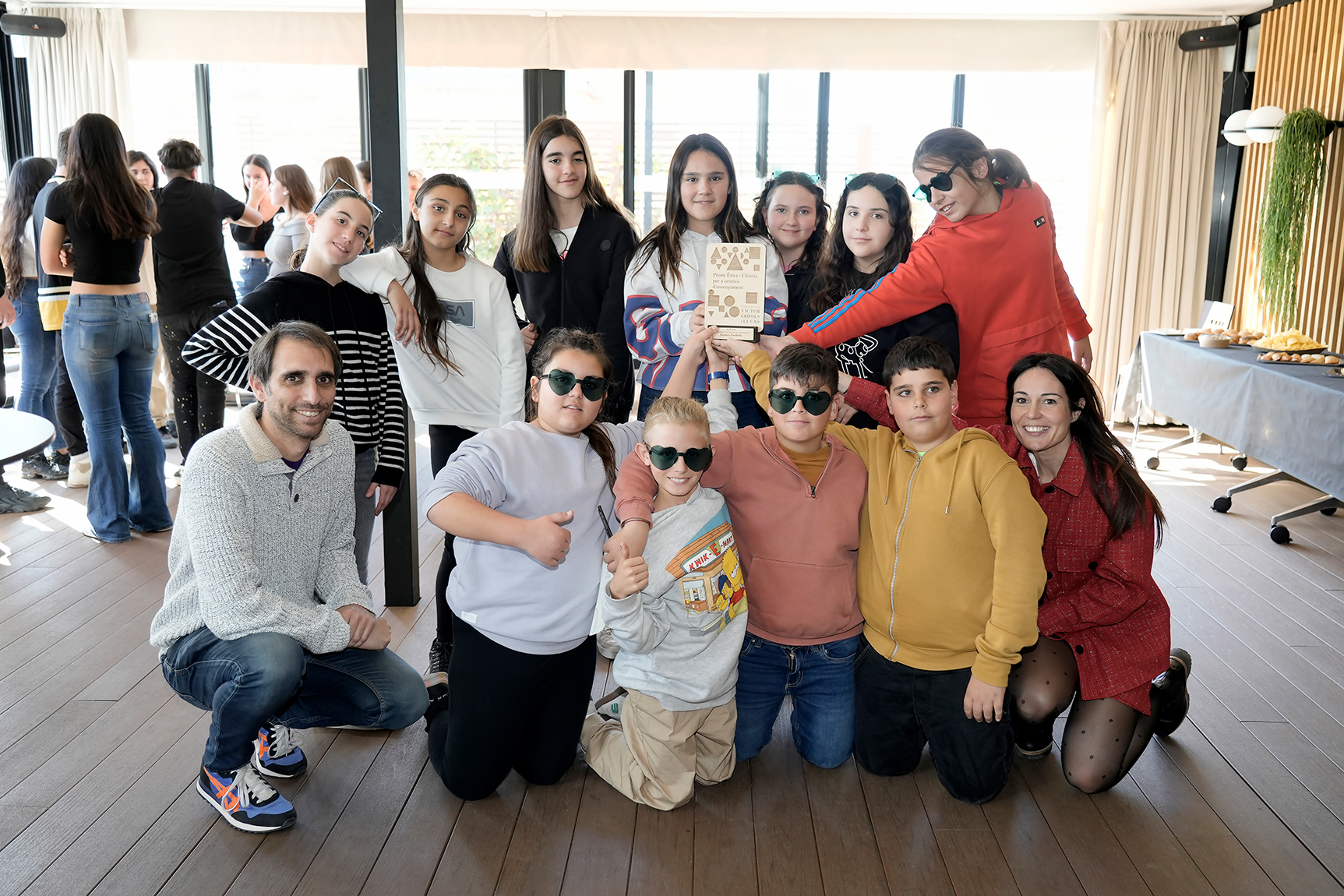
The project aims to raise awareness about the importance of local biodiversity through various educational activities centred around the benefits of sustainable agriculture, with a specific focus on the cultivation of the native “Perruqueta” escarole. This project also aims to contribute to the preservation of this type of vegetable, which is in danger of being lost.
These preservation efforts are designed to involve students in an interdisciplinary manner, incorporating elements from various areas of the curriculum such as language, mathematics, natural sciences, social studies, and cultural studies. This integrated approach aims to facilitate a more holistic learning experience where knowledge can be applied across diverse contexts.
2022
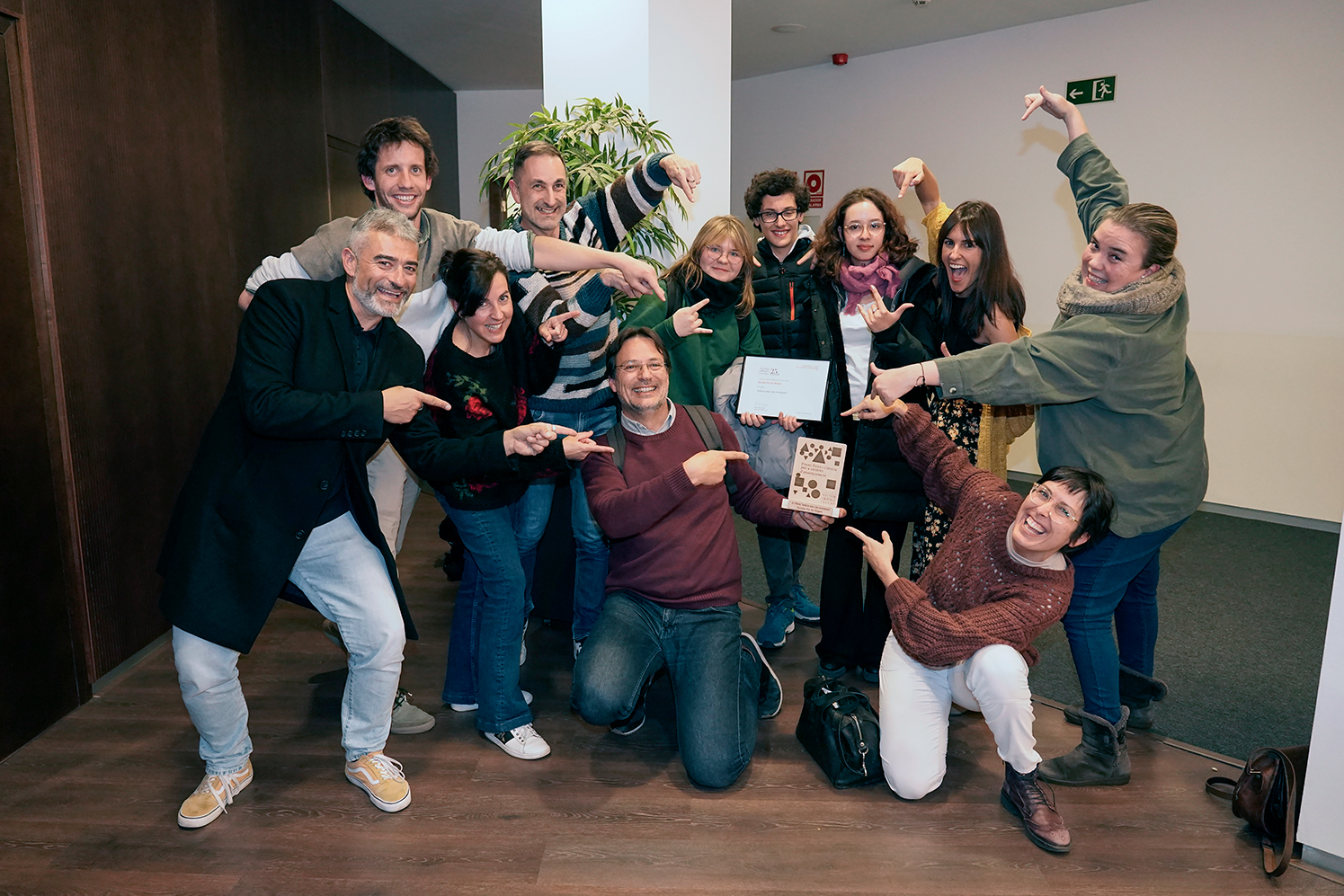
Human migration is an activity that dates back thousands of years. Most migrate for work, family and study, but there are people who are forced to migrate due to devastating reasons such as political conflict, persecution and natural disasters. Although they represent a small percentage of all migrants, refugees and internally displaced people usually require more assistance and support.
In this sense, this education project entitled “With their lives in their pockets” serves to help students understand the reasons why people leave their country to better their lives and how they embark on a new life in the destination country. The aim of this project is to understand the human challenges associated with migration as a widespread social phenomenon and raise awareness in our communities about this issue, especially in connection with migration occurring close to home.
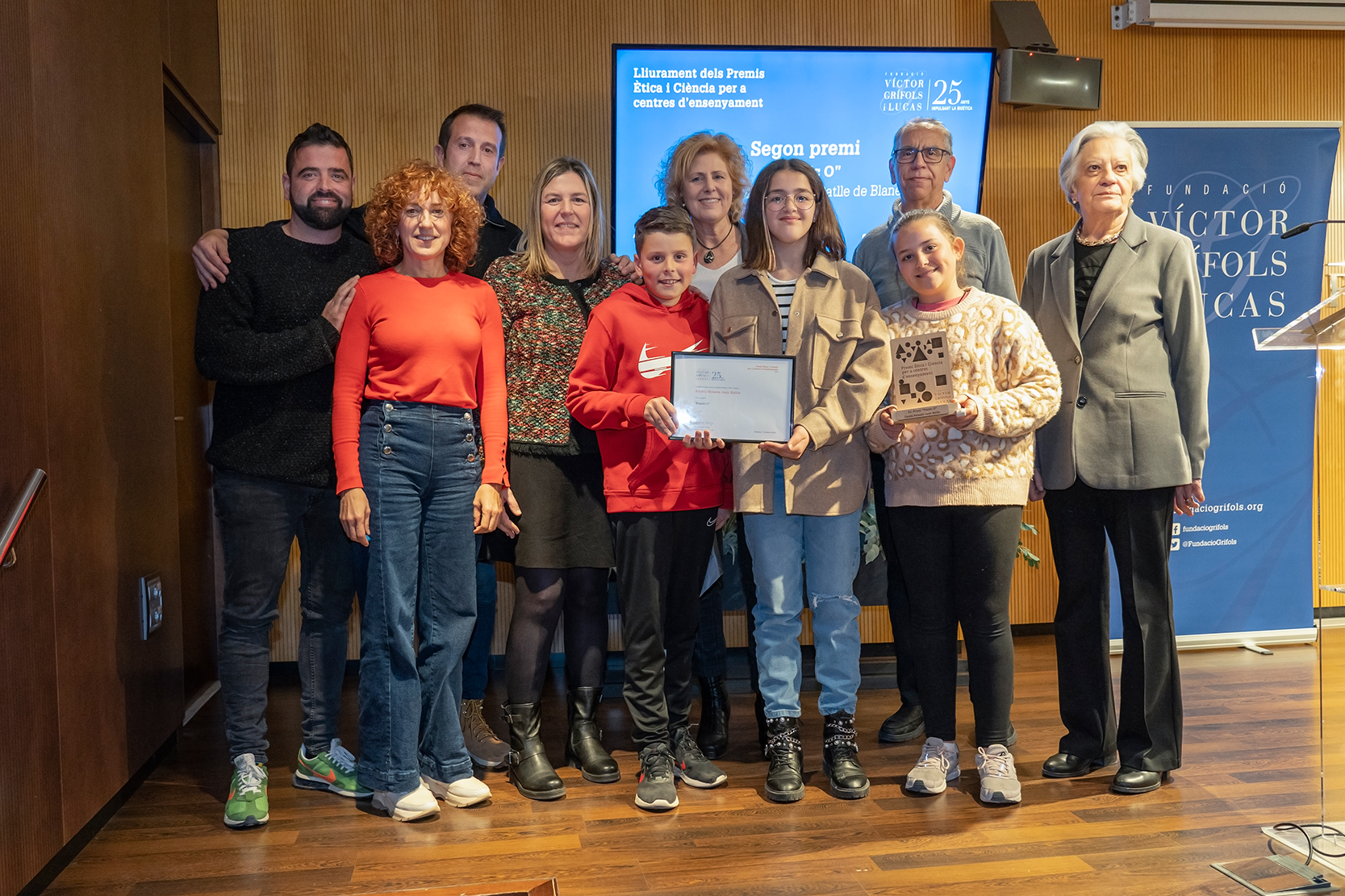
The aim of this project is to raise awareness about micro and mesoplastics in the marine environment and how they enter the food chain. The project carries out a general diagnosis of this problem on beaches in order to help find solutions. The idea here is to promote critical thinking and creativity among students and to show them how to respond to real challenges through the application of the scientific method.
Conducted annually by the school’s Year Five pupils since 2016, the aim of this project is to get students involved in sustainable consumption and the analysis of issues related to the use of plastic whilst fostering respect for the environment. The award money will go towards consolidating this project at the school and developing awareness campaigns for the general public.
THIRD PRIZE
Bellvitge Secondary School in L'Hospitalet de Llobregat for “COMMUNICATION: Ethics, Science, and Technology”
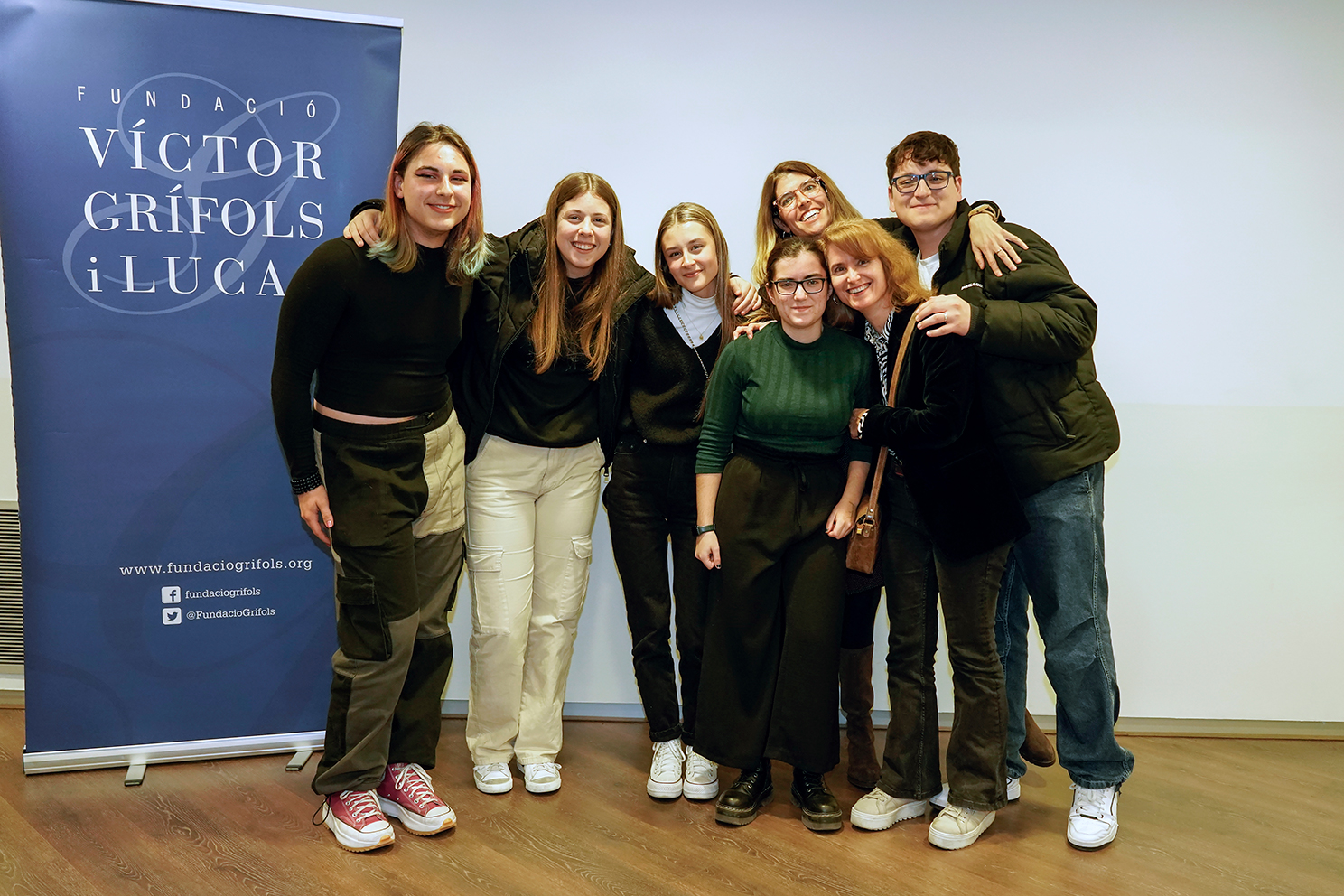
This project seeks to promote reflection and critical thinking among students in connection with scientific and technological advances and the analysis of their ethical implications. The overall aim of the project is to facilitate the development of communicative skills, educate students on how to work collaboratively with other institutions, and advance discussion of ethical issues.
The project notably includes the participation of experts in fields associated with the project (food supply, animal testing, artificial intelligence, etc.) in conversation with students from the school, interviews with scientific leaders, and the publication of resulting insights in the school magazine Life and Science.
2021
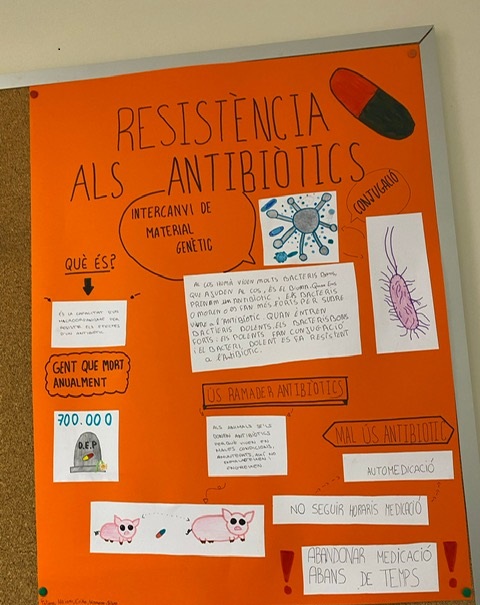
Institut Baix Montseny, Sant Celoni
This initiative is part of the centre's Plan for Transition to Employment, a professional training programme for young people aged between 16 and 21, who have not graduated high school, in partnership with ISGlobal. The general objective of the project is to raise students' awareness about resistance to antibiotics or Antimicrobial Resistance (AMR), through reflection on their health, the health of their environment, and the ill-treatment of animals in the meat industry involving the use of antibiotics.
More specifically, they will participate in designing a logo about AMR prevention, creating an advertisement, and attending the AMR Prevention Week. The prize will help to give continuity to the project, enabling the centre to continue to promote ethical reflection among its students.
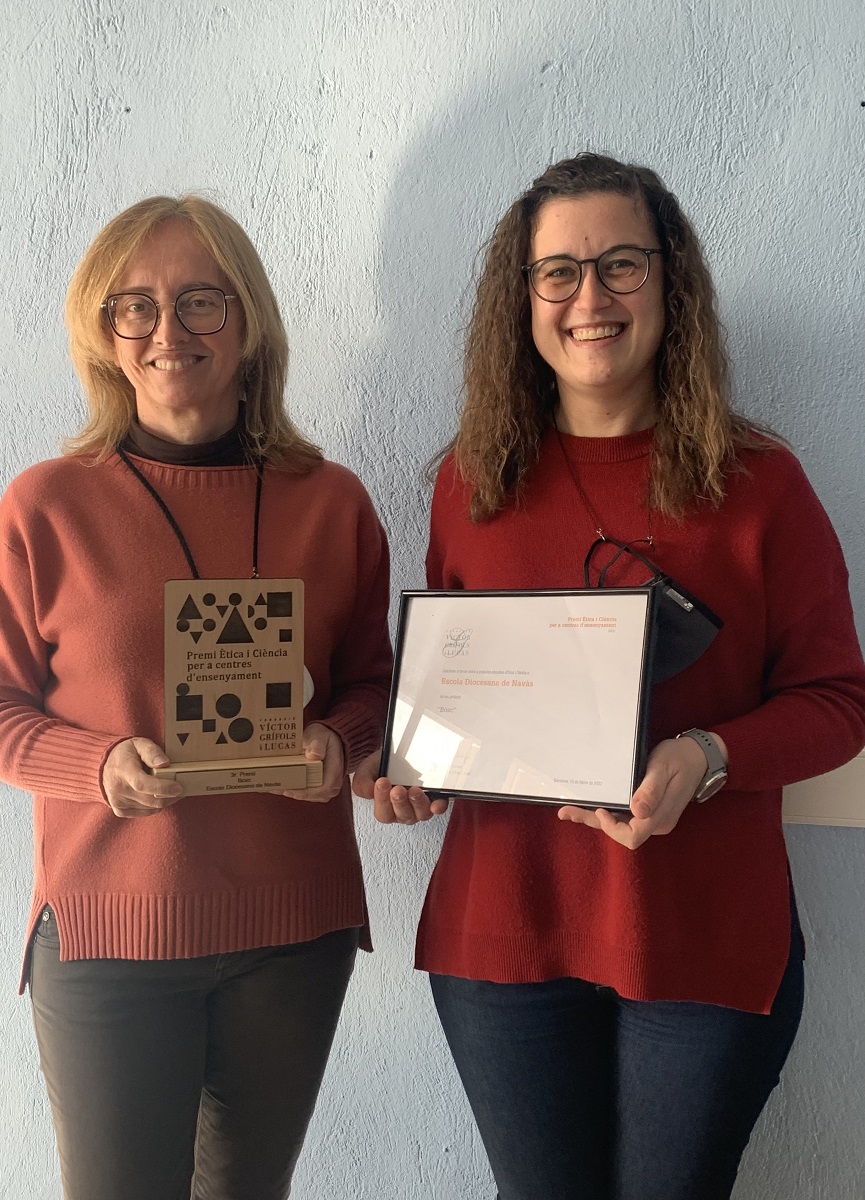
Escola Diocesana, Navàs
The BOSC project has involved students in the first year of high school working across the curriculum throughout the year, considering ways to improve the health of woodlands and help create a more sustainable world. To answer this question, they studied local woodlands, their impact on the environment, and the initiatives we can take to improve their health.
Some of the measures proposed included cleaning river and reservoir water, using renewable energy that does not pollute the ecosystem, and the production and consumption of sustainable foods. This project refers back to the origins of bioethics, inviting us to reflect on our responsibility to protect the environment.
2020
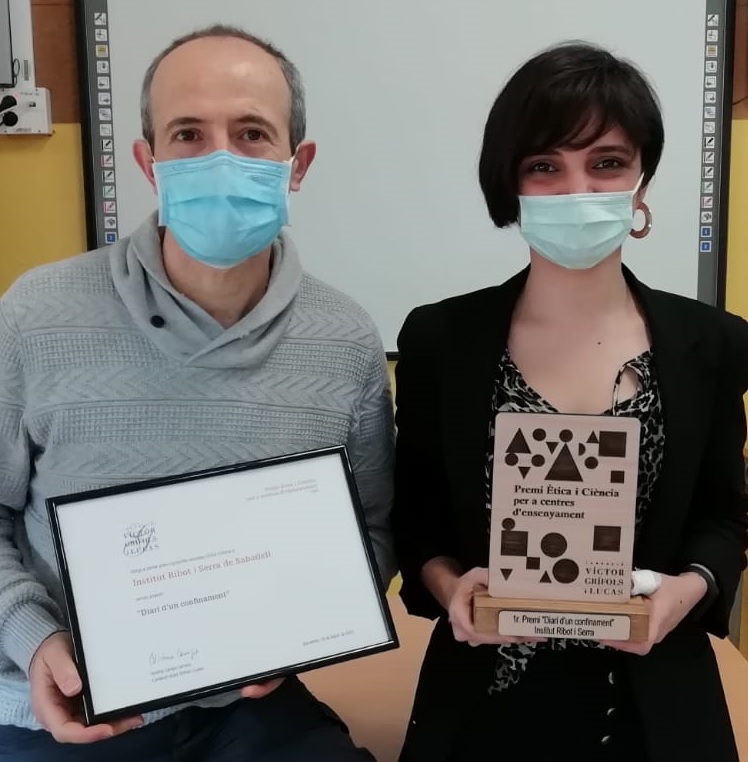
Instituto Ribot i Serra, Sabadell (Barcelona)
Diary of a confinement was created as an opportunity for learning about bioethics in the context of lockdown, drawing on students' reflections on their experience of being bombarded with a non-stop stream of news about COVID-19.
The aim of the project was to give students in the 4th year of secondary education the opportunity to learn how to form opinions based on the facts, developing critical thought and expressing their views, emphasizing the importance of subjects such as language and philosophy.
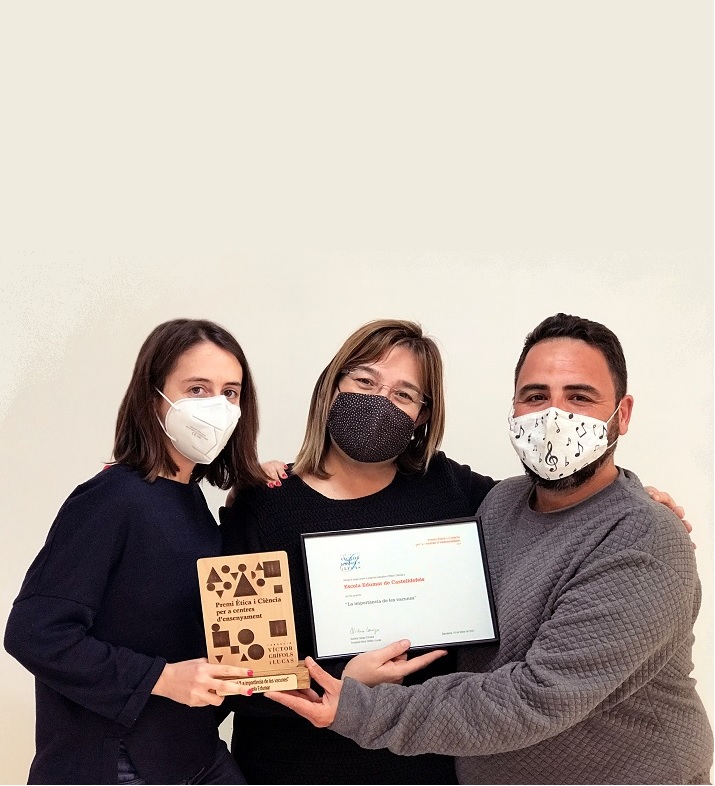
Escola EDUMAR, Castelldefels (Barcelona)
This project aimed to explain vaccines and the science that surrounds them to students in the 6th year of primary education. With the principal objective of promoting knowledge and critical thinking about vaccination, students learned about the history of vaccines, analyzed the current situation regarding the COVID-19 vaccine, and learned to discuss the ethical aspects of it.
This was a cross-disciplinary project, incorporating bioethics in a number of areas and seeking to improve student skills in language, mathematics, knowledge of the world, ethics and digital competencies.
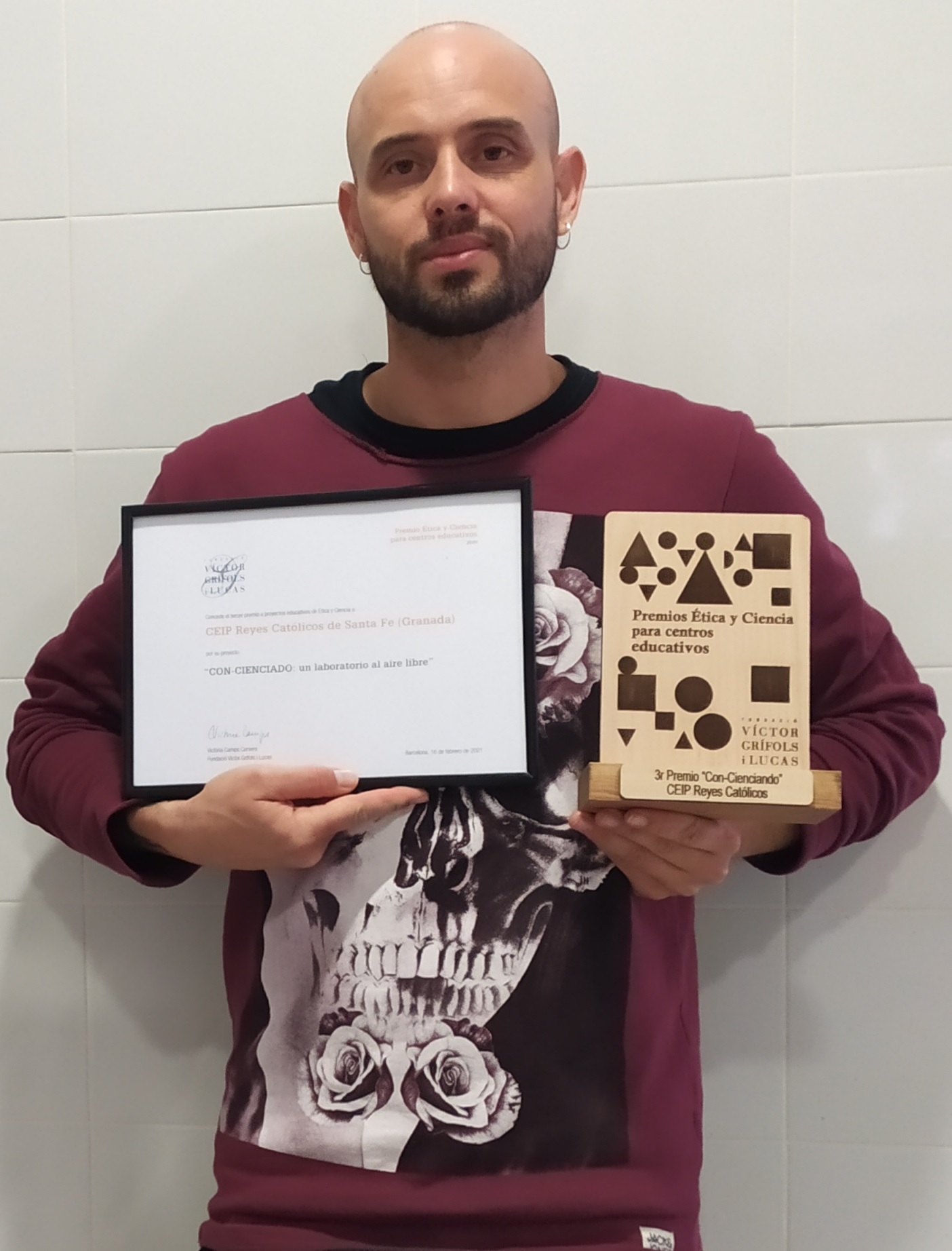
CEIP Reyes Católicos, Granada
This educational project was based on environmental, social and economic sustainability. The school established an eco-garden in 2016, and since then has actively involved students in conservation, making this one of the school's cross-disciplinary themes. The objectives included promoting contact with the earth, reflecting on socio-environmental and bioethical impacts, and encouraging healthy eating habits.
2019
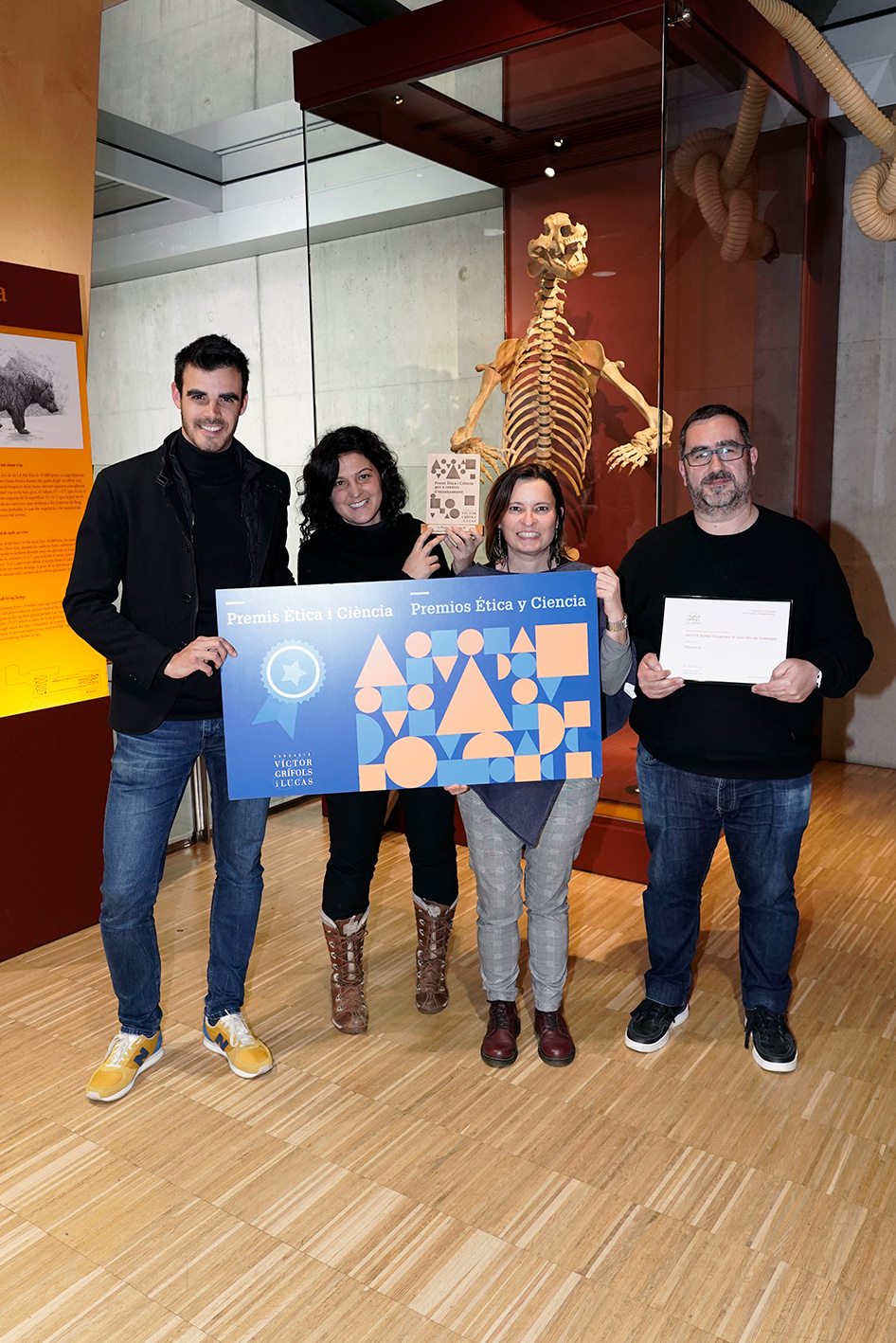
Institut Rafael Casanova, Sant Boi de Llobregat (Barcelona)
This project reflects the need to raise awareness of our shared responsibility for environmental pollution, focusing on the waste generated at the school and involving students in the first year of secondary education in recycling this waste. The main objectives of the project were to implement a selective collection and recycling system, reduce the use of foil, replacing it with reusable wrapping, and reduce the use of plastic bottles, replacing them with stainless steel cannisters.e.
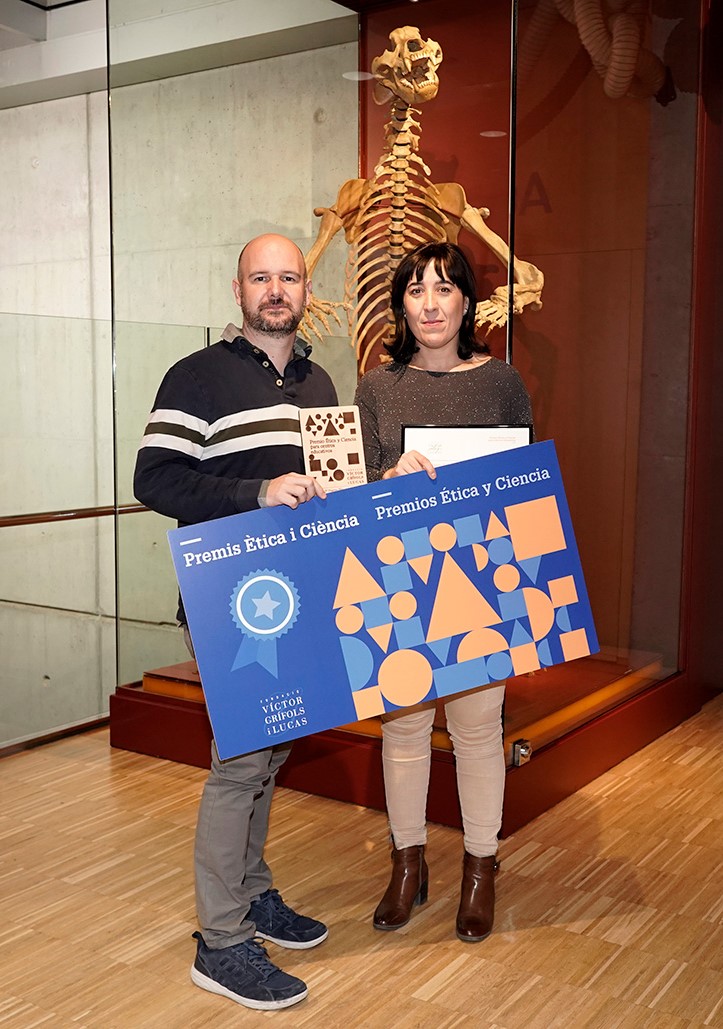
Salesianos Pamplona
The project "Electronics and ASD: building bridges for communication" was undertaken by students in the first year of the Diploma in Automation and Industrial Robotics, who designed and constructed electronic devices to facilitate interaction for children with Autism Spectrum Disorder (ASD). The final products included a portable multi-sensory room, a routine board and a classroom noise gauge, with the collaboration of the Navarre Autism Association (ANA) and Colegio Santa Luisa de Marillac.
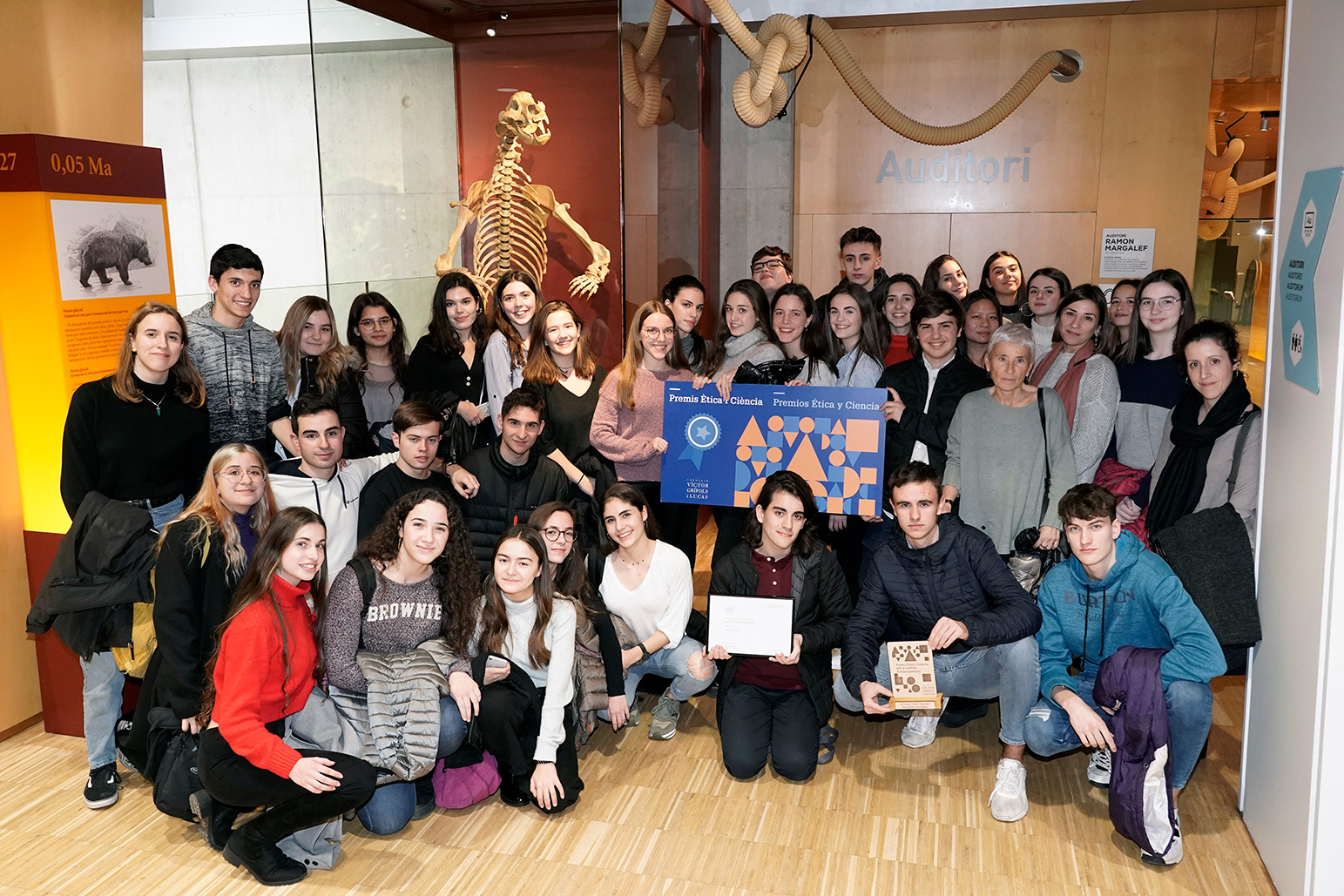
Escola Pia de Granollers (Barcelona)
This project aimed to raise student awareness of bioethics in scientific, social, philosophical and ethical settings, thus promoting inter-disciplinary working and reflection among students in the first year of baccalaureate. Teachers designed their teaching plan around the relationship between ethics and science. Finally, two magazines were published and distributed to all pupils.
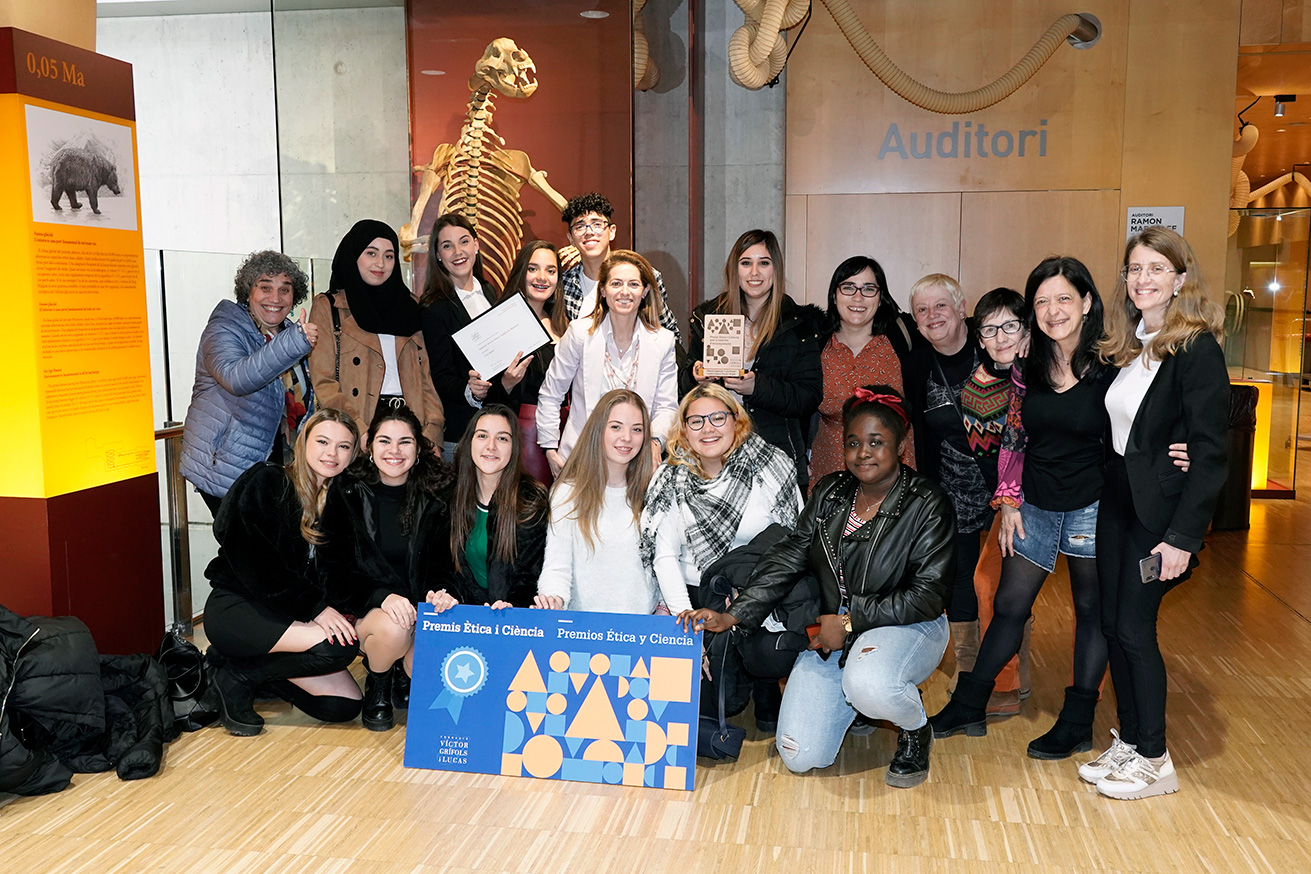
Institut Antoni Pous i Argila, Manlleu (Barcelona)
The aim of this project was to provide high-quality training for professional carers looking after people in situations of dependency, addressing both the technical and human aspects of care. Through case studies simulated by amateur actors, students had the opportunity to practise communicating with service users and to address the most important ethical aspects of care provision.
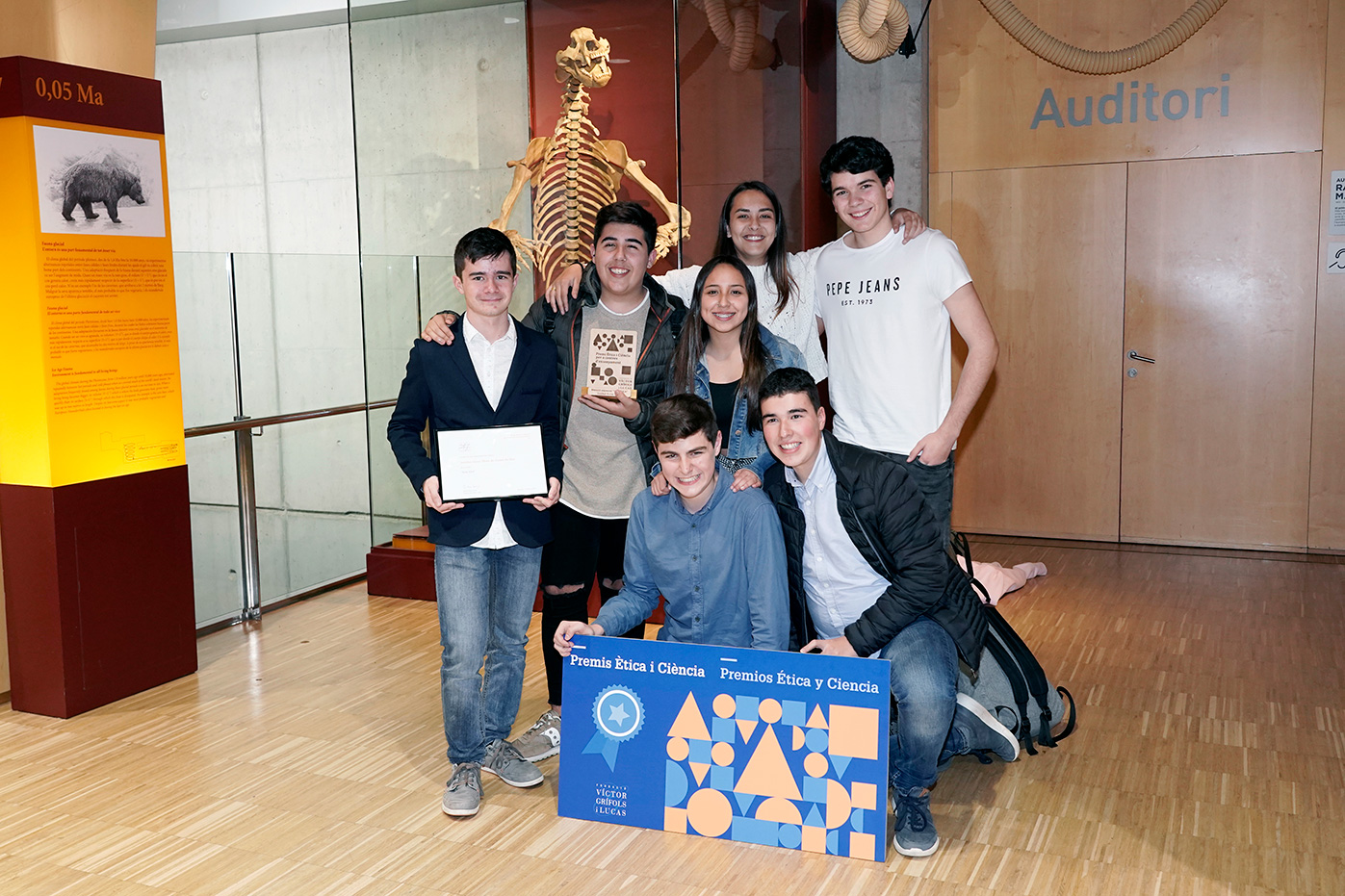
Institut Sunsi Móra, Canet de Mar (Barcelona)
This project sought to make bioethics accessible to first year baccalaureate students, inviting them to take part in an Ethics Committee considering an issue that affects them directly: the question of "mature minors". The aim was to involve students in identifying and evaluating the rights and duties of minors in the health context, in order to promote and develop decision-making competency based on active listening and mutual respect.
2018
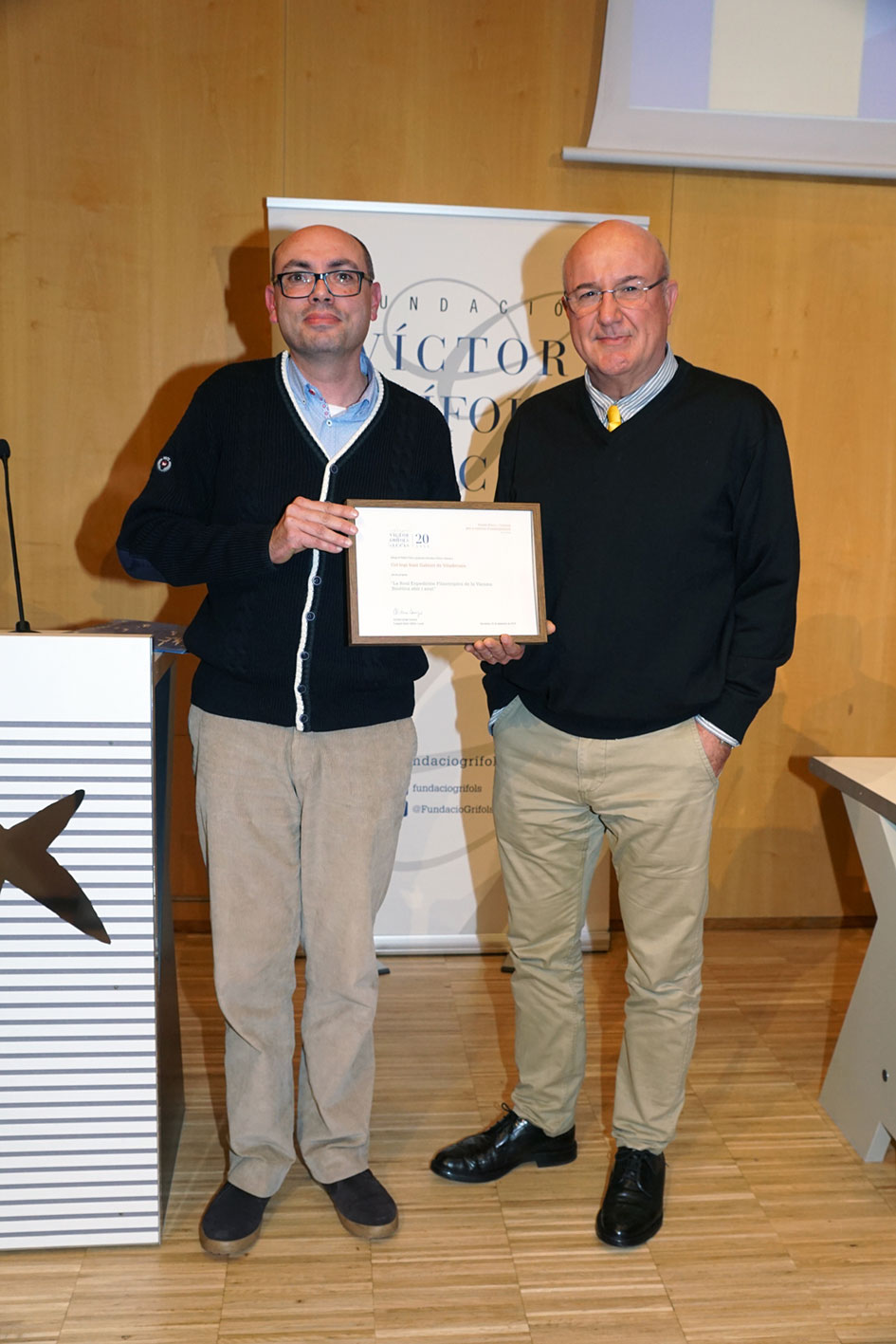
Escola Sant Gabriel, Viladecans (Barcelona)
This project highlights the positive effect of mass vaccination as a key contributor to improved life expectancy in our society. Through case studies, students are asked to identify ethical principles that were ignored and to evaluate these with respect to the actual or supposed benefits delivered in each example.
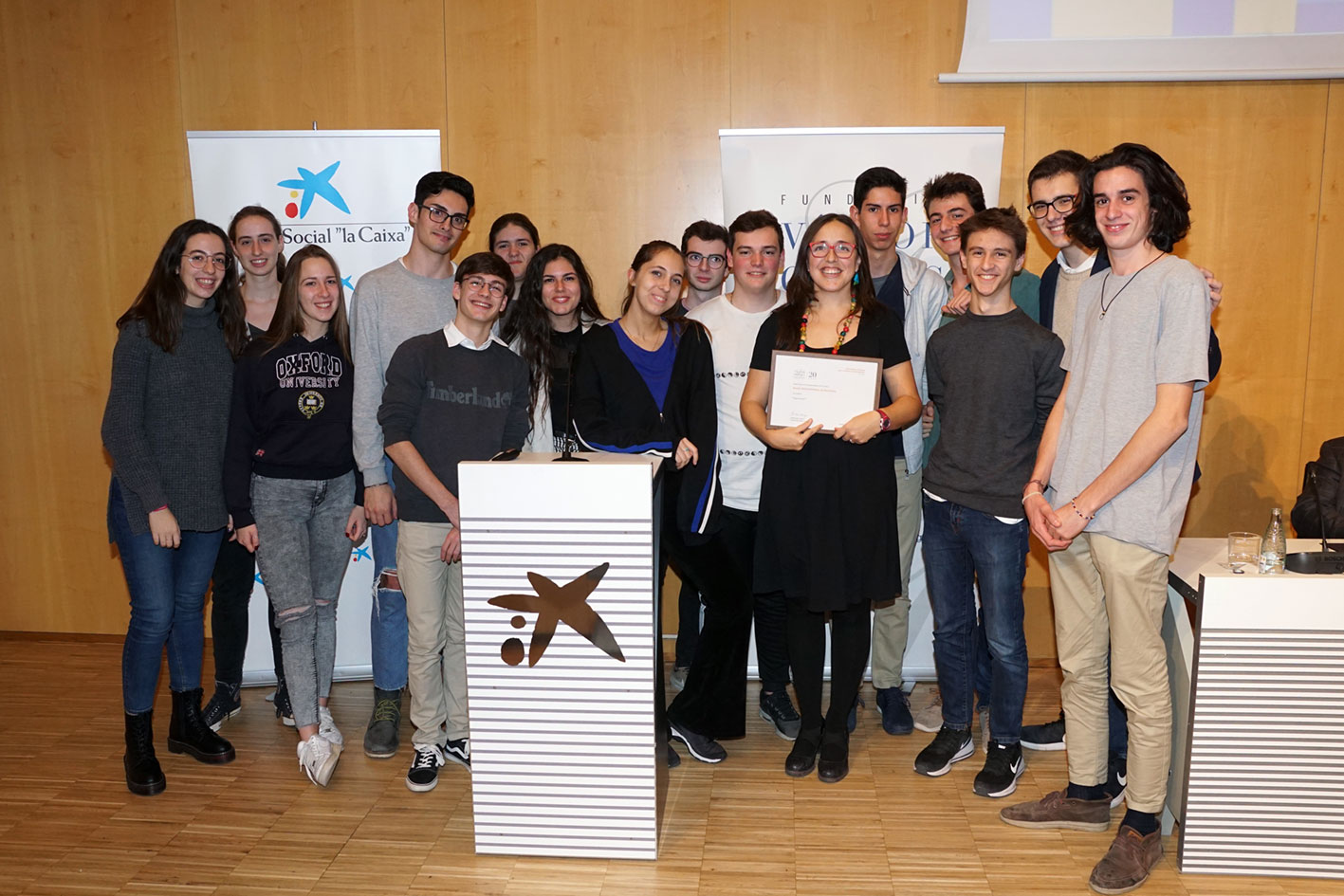
Escuela Betània Patmos, Barcelona
The "Shall we change?" project consists of a teaching plan to help students move from being informed spectators to having an active part in bringing about the change towards sustainability. Using classroom role play, the project seeks to make students aware of the many ways in which they influence the environment and of the actions they should take to address this.
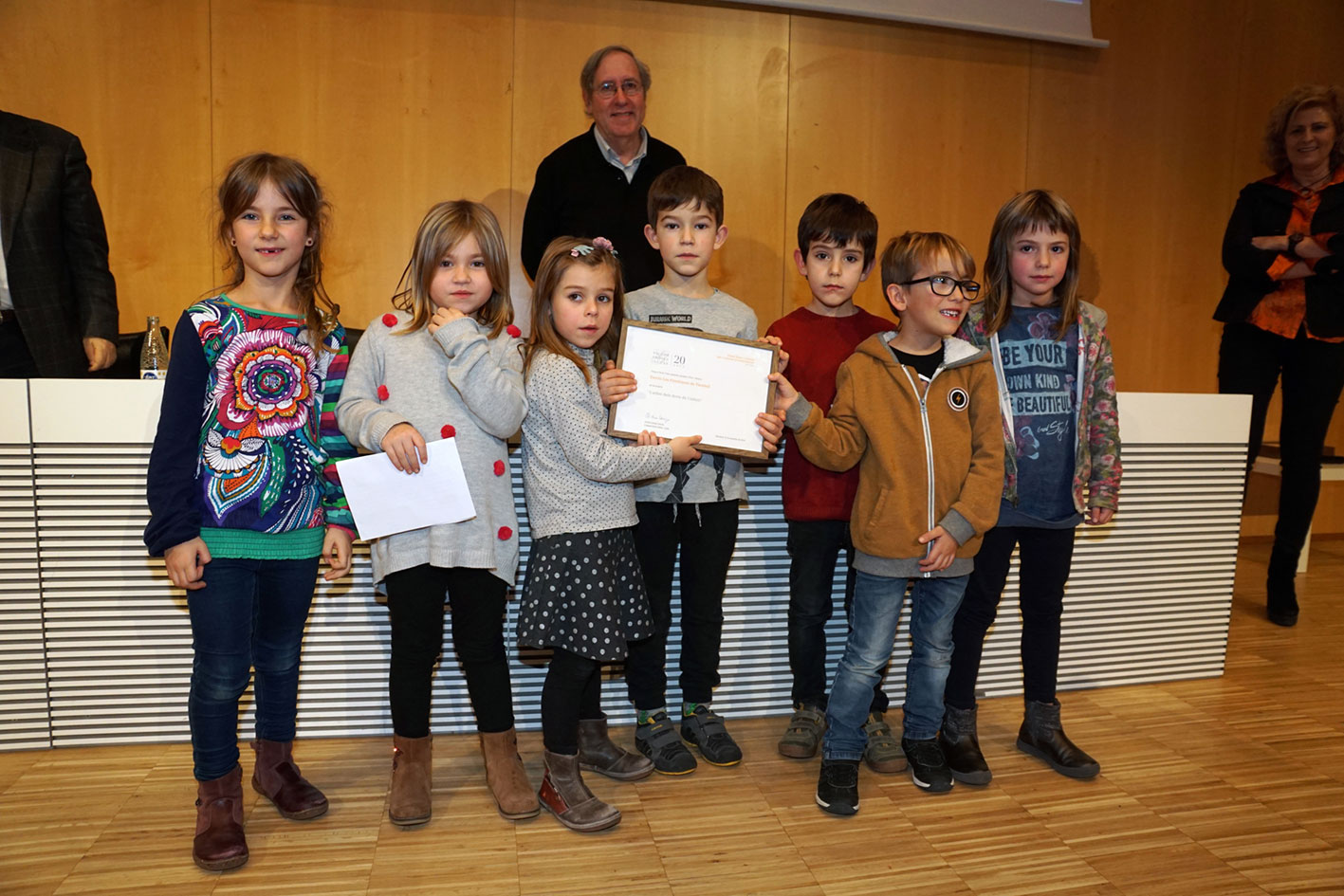
Escuela Les Pinediques, Taradell (Barcelona)
The "Tree of Children's Rights" is a large sculpture created by the pre-school children and Guixot de 8 workshop, and is the fruit of a year's work using recycled materials. This project represents the children's efforts throughout the school year as they asked questions, and thought about children's rights and how to represent them in order to create figures that symbolize humanity's duty to respect these rights.
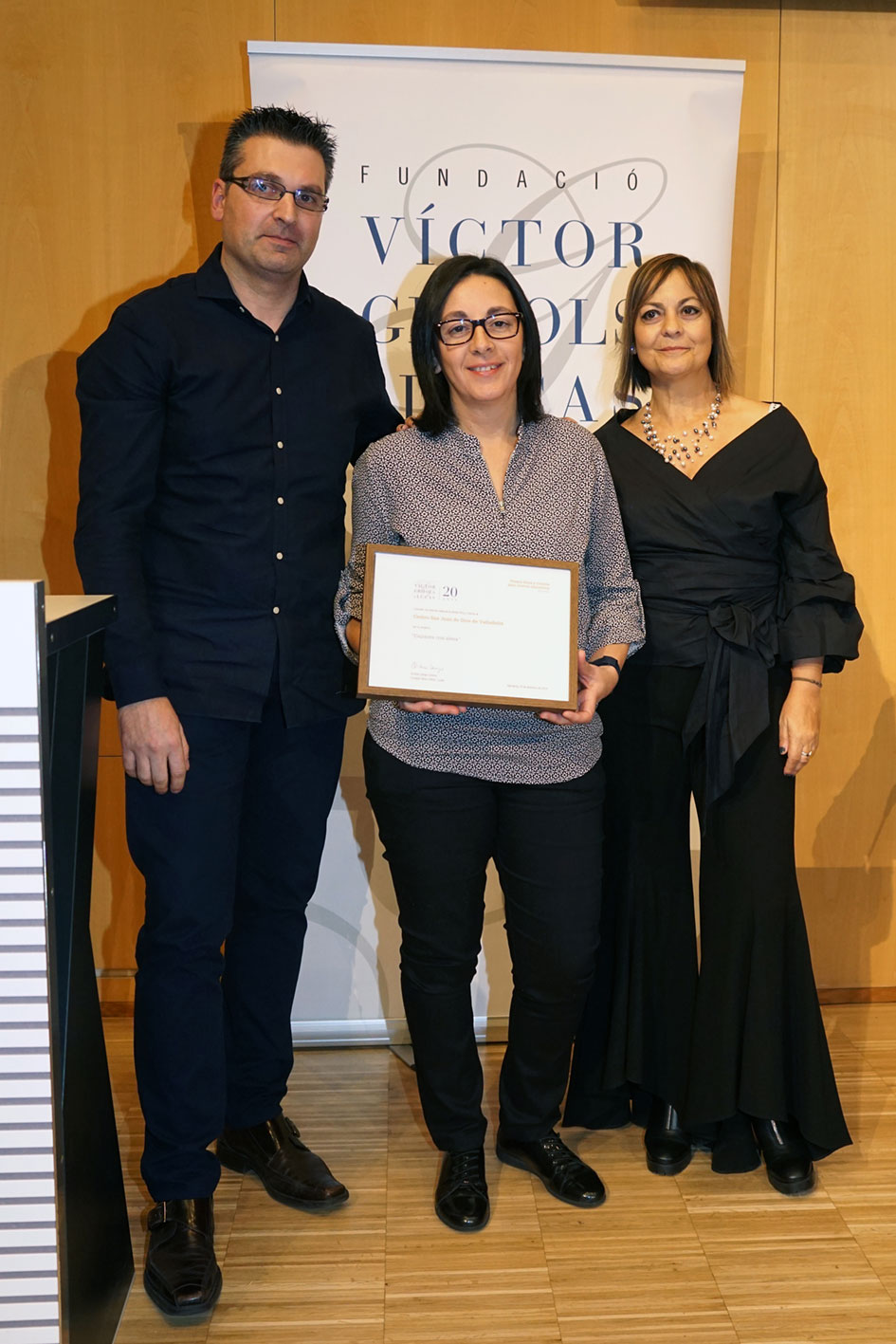
Centro San Juan de Dios, Valladolid
This project addresses the issue of cognitive accessibility within the wider framework of universal accessibility by educating people with mental disability in a range of key ethical concepts. The project aims to promote the participation and inclusion of people with a mental disability through inclusive ethical educational activities.
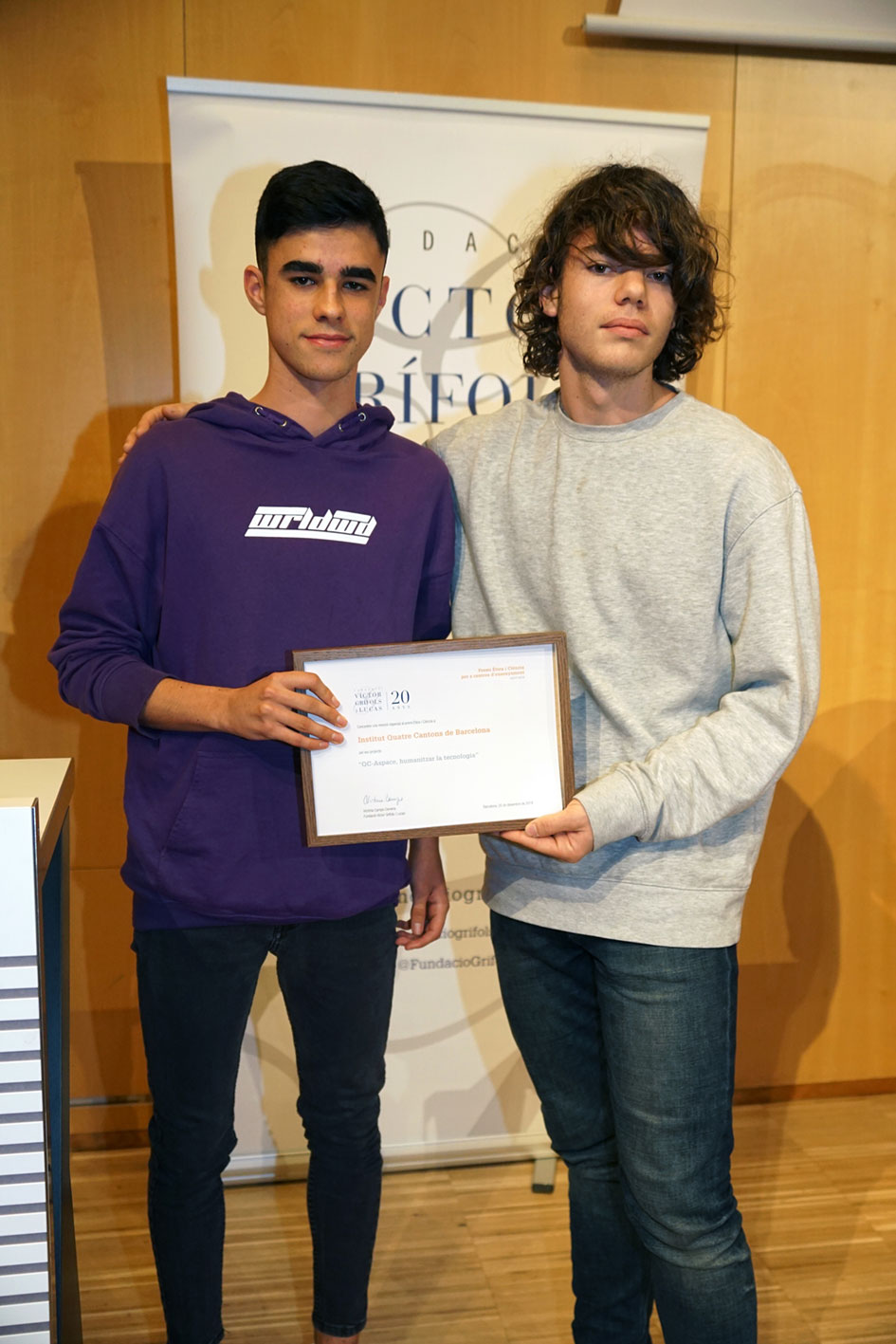
Instituto Quatre Cantons, Poblenou (Barcelona)
This project, completed in partnership with Fundación ASPACE (Badalona), sought to design objects that would help young people with cerebral palsy to overcome problems in their daily lives, taking as its starting point the view that technology should serve everyone. At the same time, it aimed to bring high school students into contact with the realities faced by people with cerebral palsy, and to identify some of the main difficulties they encounter in their daily lives.
SPECIAL MENTION
Instituto Berenguer d'Entença, Vandellòs i l'Hospitalet de l'Infant, for "The Environmental Storyteller"
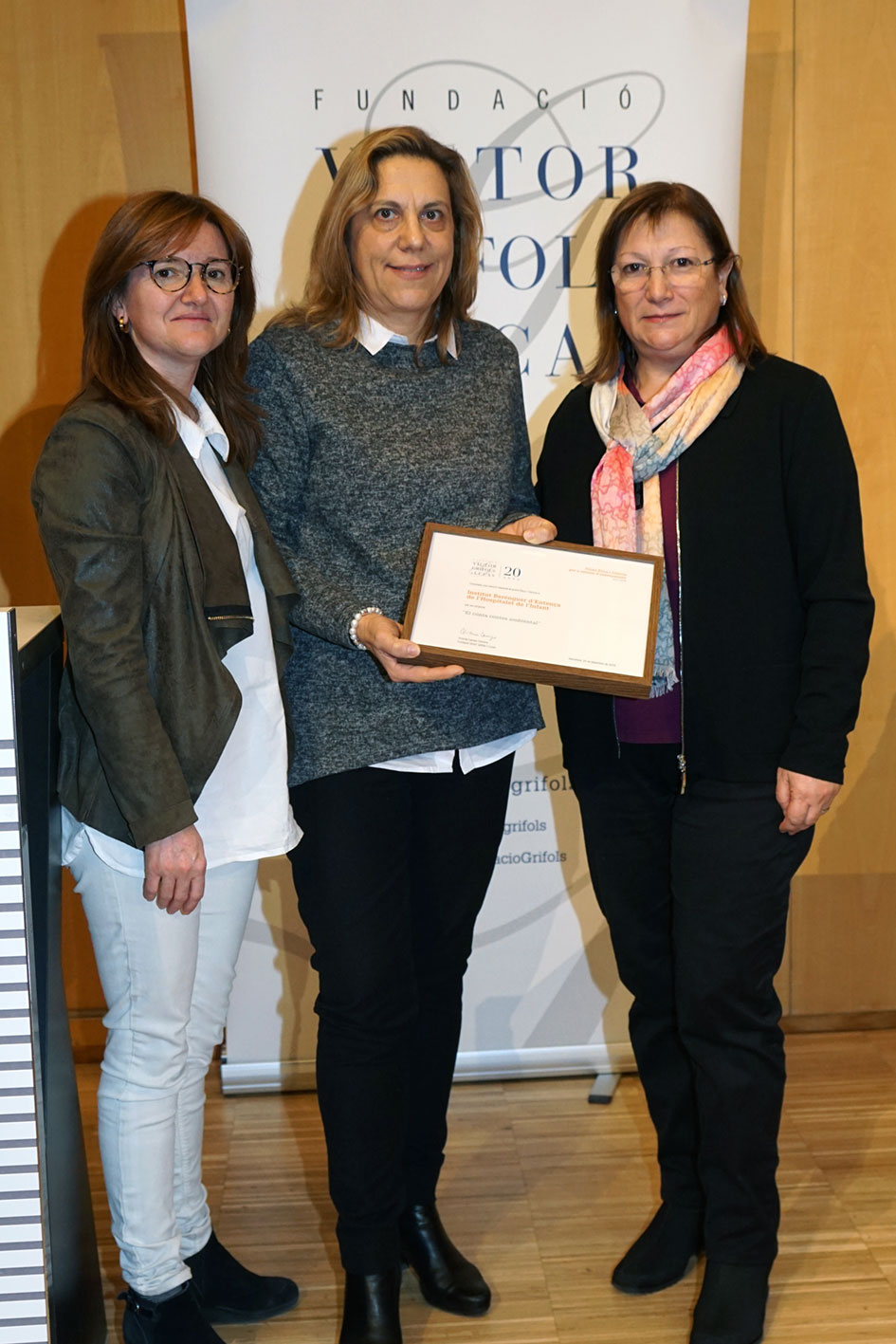
Instituto Berenguer d'Entença de Vandellòs i l'Hospitalet de l'Infant (Tarragona)
The "Environmental storyteller" project aims to raise awareness of environmental issues and to develop a culture of ecology from early childhood. It seeks to do this through reflecting on the role we play in environmental issues, both as a source of problems and as a source of solutions.
2017
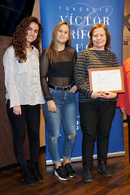
Institut de Sentmenat (Barcelona)
This project seeks to raise students' awareness and their understanding of the ethical issues related to scientific and technological progress. It promotes analysis of the relationship between ethics and science, and the need to be aware of the behavioural implications of technological development.
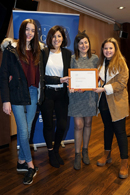
IES Xunqueira II, Pontevedra
This is a multidisciplinary project that brings together all the areas of learning needed for human beings to be able to live on Mars. The project addresses scientific, cultural, ethical and humanitarian issues by asking students to create a self-sustaining civilization which respects the environment and resolves ethical conflicts on the basis of understanding and dialogue.
2016

 Students and teachers explain their project
Students and teachers explain their project
The project aimed to address the lack of participation by young people in social discussions and decision-making, the lack of debate around essential bioethical issues, and the lack of knowledge about the services that Clinical Ethics Committees can provide.The Ethics Committee of Área Sanitaria I from Asturias coordinated the project.
SECOND PRIZE
IES Rosalía de Castro (Santiago de Compostela) for the project "Ethical implications of artificial intelligence".

 Students and teachers explain their projects
Students and teachers explain their projects
The project consists of a series of activities which give participants the opportunity to discover the latest advances in Artificial Intelligence and robotics, to analyze their influence in today's society, and to debate the ethical implications of these changes.

 Students and teachers explain their projects
Students and teachers explain their projects
This project focused on sustainability and ethics, starting from the idea that we cannot satisfy our needs without also considering the needs of others, and those of the generations to come.

La Salle de Bilbao
CONciencia is a project lab designed for cross-curricular implementation at different levels and stages of the education system. The project considers the question of whether drugs and medicines constitute a global social and public health problem. In particular, it focuses on drugs and medicines as natural or synthetic chemical compounds that alter the individual's social behaviour.
RUNNER-UP AWARD
Garbí Pere Vergés, Esplugues de Llobregat for the project: "How can we introduce bioethics in schools?"

Escuela Garbí Pere Vergés, Esplugues de Llobregat (Barcelona)
One of the principal objectives of science courses is to promote the consideration of ethical aspects with respect to biology and the other sciences. The aim is therefore to address bioethics as a part of the school's mainstream teaching, through a set of projects and activities that form part of the wider curriculum. The project consists of a series of workshops to be delivered as part of science teaching, during the final two years of primary teaching through to the end of high school.
RUNNER-UP AWARD
IES Isidra de Guzmán, Alcalá de Henares for the project "Act! It's your responsibility"
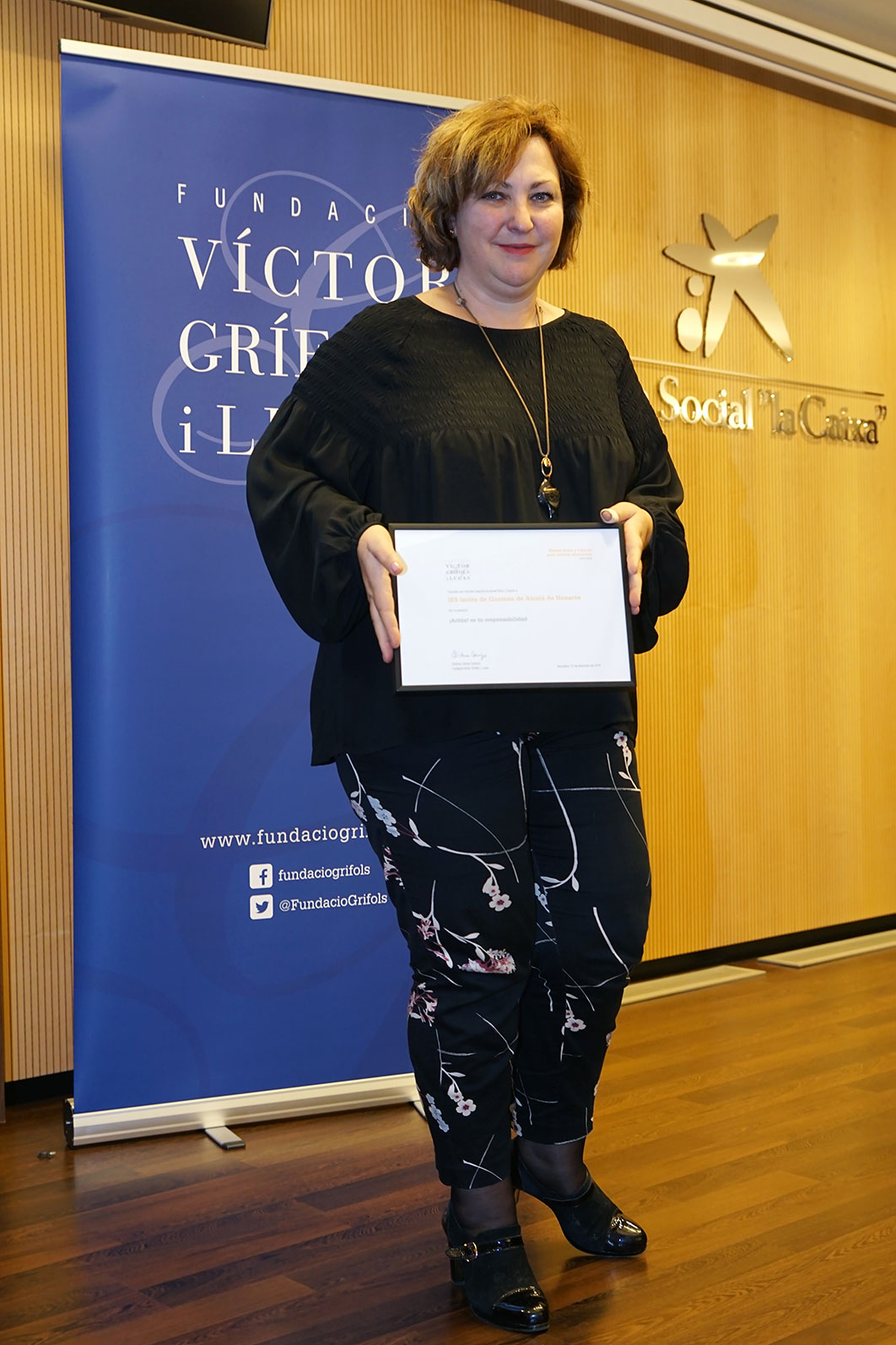
IES Isidra de Guzmán, Alcalá de Henares (Madrid)
This project focuses on environmental education for sustainable development, as part of the Philosophy and Religion curriculum for the first year of the baccalaureate programme. Classes are organized around collaborative learning projects to produce an action plan for students in the first four years of high school; for parents, teachers, and the local community; and for the wider society. In the second phase, younger students design their own action plan, guided and supported by the working group, thereby creating a multiplier effect.
2015
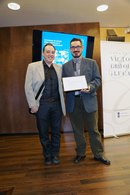
IES Fontanelles, Les Borges del Camp (Tarragona)
This initiative was launched 7 years ago, and now forms part of the regular curriculum. The aim is to combine social, economic and biological issues in a role play activity in which students put themselves in the position of members of an ethics committee to construct and manage a hospital.
2014
FIRST PRIZE
Garbí Pere Vergés School in Esplugues de Llobregat for the project "Biotechnology and society".
The "Biotechnology and society" project includes various classroom activities that have been taught for the past four years as part of the subject "Sciences for the contemporary world" which is studied during the first year of Pre-University studies. One of the aims of the course is to advance the ethical aspects related to biomedicine and other specialties in the field of science by incorporating bioethics as a normal functional element at the center within the set of projects and activities that comprise the annual curriculum.
THIRD PRIZE
El Cairat Institute in Esparreguera for the project "Pleasure and passion of investigation".
Since 2004, El Cairat Institute has been running a project that arises from the desire to introduce and encourage the spirit for research in youngsters in all areas of the center. This educational experience encourages the learning of competencies, based on mastering the core competence of learning to learn as well as introducing collaborative work as a teaching and learning process.
